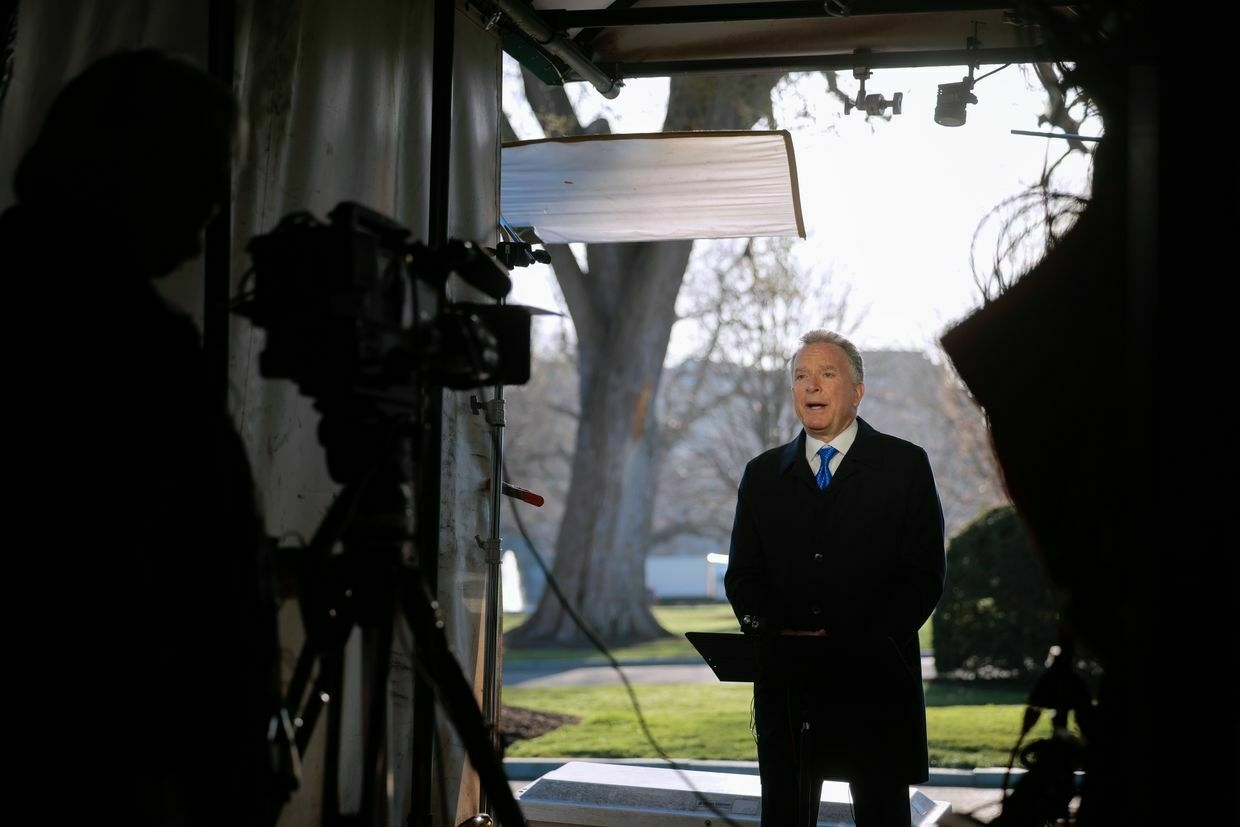-
Ukraine war latest: Russia has struck Ukraine's energy sites 8 times since March 18, Kyiv says
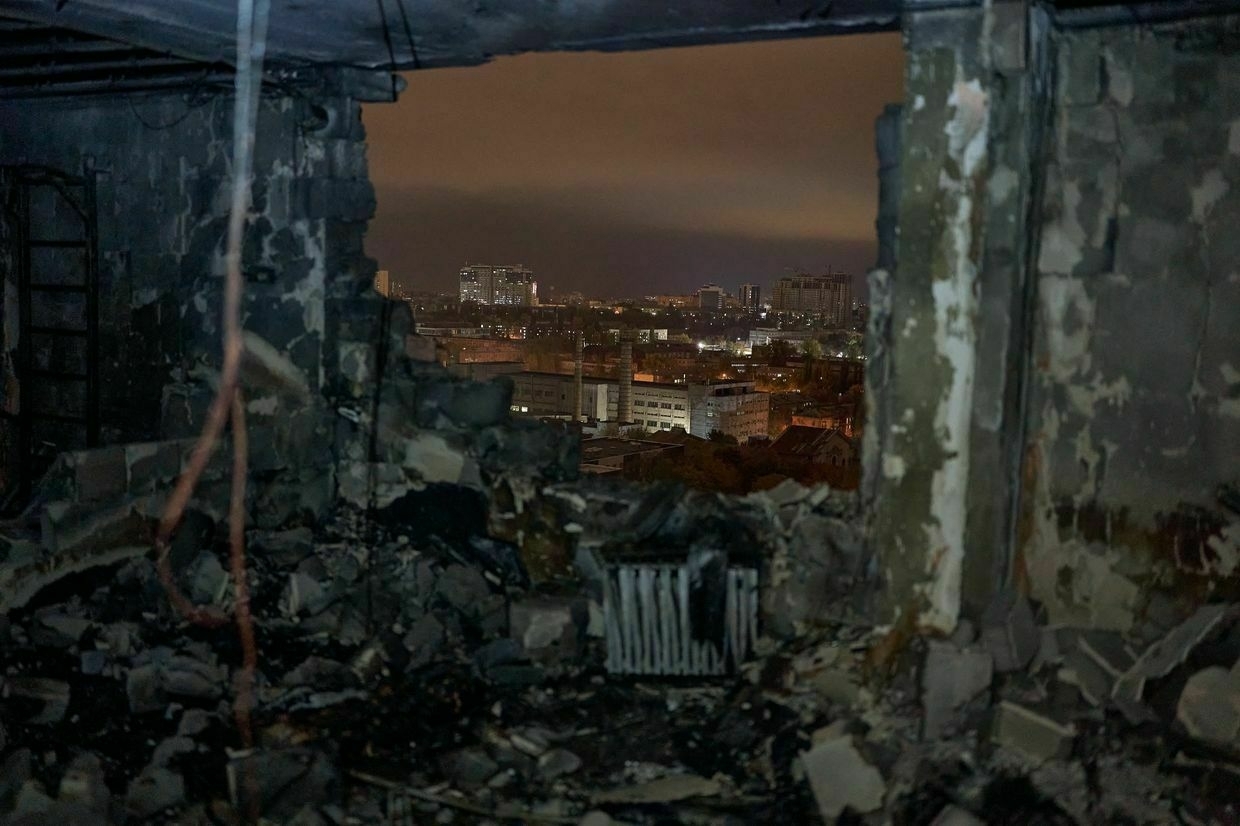
Key developments on March 26:
- Russia has struck Ukraine’s energy sites 8 times since March 18, Zelensky’s advisor says
- Ukraine’s list of energy facilities banned from attacks differs from Russian version, Energy Ministry says
- Ukraine-US relations ‘back on track,’ Zelensky’s chief of staff says
- Russia’s withdrawal from Ukraine condition for easing EU sanctions, commission says
Ukraine has recorded eight confirmed hits against its energy facilities by Russian forces since March 18, when the Kremlin claimed to have ordered a pause on such attacks, presidential advisor Dmytro Lytvyn said on March 25.
“Moscow is a city built on lies, no surprise to anyone in Ukraine,” President Volodymyr Zelensky’s aide said.
Russian President Vladimir Putin said on March 18 that he had ordered a 30-day halt on strikes against energy facilities after rejecting a full truce on all military operations in a phone call with U.S. President Donald Trump.
After separate rounds of talks between the U.S., Russia, and Ukraine in Riyadh, Kyiv and Moscow declared a halt on strikes against energy facilities and military operations in the Black Sea.
Moscow claimed that the Black Sea ceasefire would take effect only after some Western sanctions were lifted, while alleging that the energy truce had been in effect since March 18.
“But the reality is — since March 18, they’ve been hitting our energy sites with bombs, attack drones, and first-person-view drones,” Lytvyn commented.
“We’re not going into all the details, but there have already been eight confirmed hits on energy facilities."
The official did not specify which facilities were hit or when. The Kyiv Independent could not verify the claims.
DTEK, Ukraine’s largest energy company, told the Kyiv Independent that their facilities recorded no hits between March 18 and 25, despite being regularly targeted before that.
Lytvyn also noted that Ukrainian air defenses have shot down hundreds of Russian drones every night since March 18, claiming that “many of those drones were likely targeting other energy facilities."
Russia accused Ukraine on March 26 of launching a drone attack at energy facilities in Russia and occupied Crimea — a claim the Ukrainian military has denied.
‘Not what Ukraine needs’ — Black Sea ceasefire favors Russia more than Ukraine, say expertsWhile the White House celebrates a ceasefire in the Black Sea after a 12-hour meeting in Riyadh, in Ukraine, the enthusiasm is muted. The agreement is missing crucial securities that Ukraine urgently needs, including protecting its ports from Russian attacks as well as opening up the blockaded Myko…The Kyiv IndependentDominic Culverwell
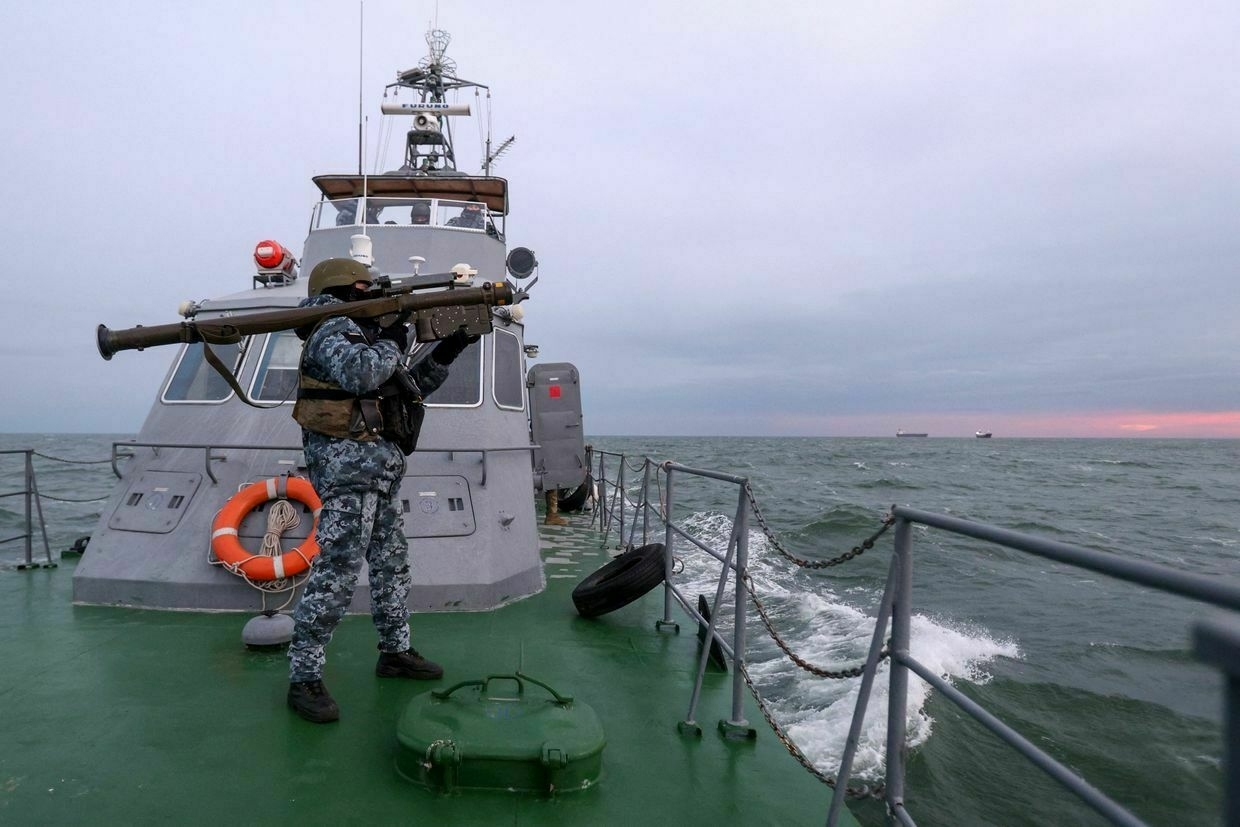
Ukraine’s list of energy facilities banned from attacks differs from Russian version, Energy Ministry saysUkraine’s list of energy facilities Kyiv wants Russia to stop striking during a partial ceasefire is at odds with Russia’s, European Pravda reported on March 26, citing a response to a request from the Energy Ministry.
The Energy Ministry told European Pravda that Kyiv and Washington had agreed to a list of energy facilities Ukraine wants Russia to stop striking as part of a truce on energy attacks. This list differs from the one Russia and the U.S. agreed to a day prior, according to the Energy Ministry.
The Kremlin said on March 25 that Russia and the U.S. had agreed on a list of Russian and Ukrainian energy facilities that were barred from attacks under a partial ceasefire between Kyiv and Moscow.
According to the Kremlin, the list included oil refineries, as well as oil and gas pipelines and storage facilities, including pumping stations. The list also included power production and transmission facilities, including power plants, substations, and transformers. Among power plants, the Kremlin specifically named nuclear power stations and hydroelectric dams.
Ukraine’s list includes a ban on strikes on the on the electric power, oil and gas, nuclear and coal industries, as well as energy equipment manufacturing facilities.
Ukrainian oil and gas production facilities — which, according to the Energy Ministry have suffered the most Russian attacks as of late — weren’t on Kremlin’s list, the ministry told European Pravda.
Ukraine-US relations ‘back on track,’ Zelensky’s chief of staff saysRelations between Ukraine and the U.S. are “back on track," Presidential Office Head Andriy Yermak said in an interview with Reuters published on March 26, almost a month after the Oval Office clash between Ukrainian President Volodymyr Zelensky and U.S. President Donald Trump.
“I think we have great conversations with the Americans,” Yermak said. “I think we are back on track."
Ukrainian-U.S. relations reached a low point following the White House clash between U.S. Trump, Zelensky, and Trump’s Vice President JD Vance on Feb. 28, with Washington pausing military aid to Kyiv and critical intelligence sharing.
According to Yermak, the U.S. realized during the talks with Kyiv that the Ukrainian side “is very serious."
“Dear American friends, you understand that we are partners. This was our goal,” Zelensky’s chief of staff said.
Speaking about Russia’s position, Yermak said that its condition to lift some Western sanctions in terms of the partial ceasefire is indicative of Moscow’s approach to peace talks as such.
“It shows that they (Russia) did not accept an unconditional ceasefire, which is nonsense. Our logic is that we need to go in without any conditions,” he added.
Ukraine approves Bird of Prey drone system for combatThe system was developed based on battlefield experience, optimizing its effectiveness against enemy vehicles and fortified positions, Ukraine’s Defense Ministry said.The Kyiv IndependentTim Zadorozhnyy
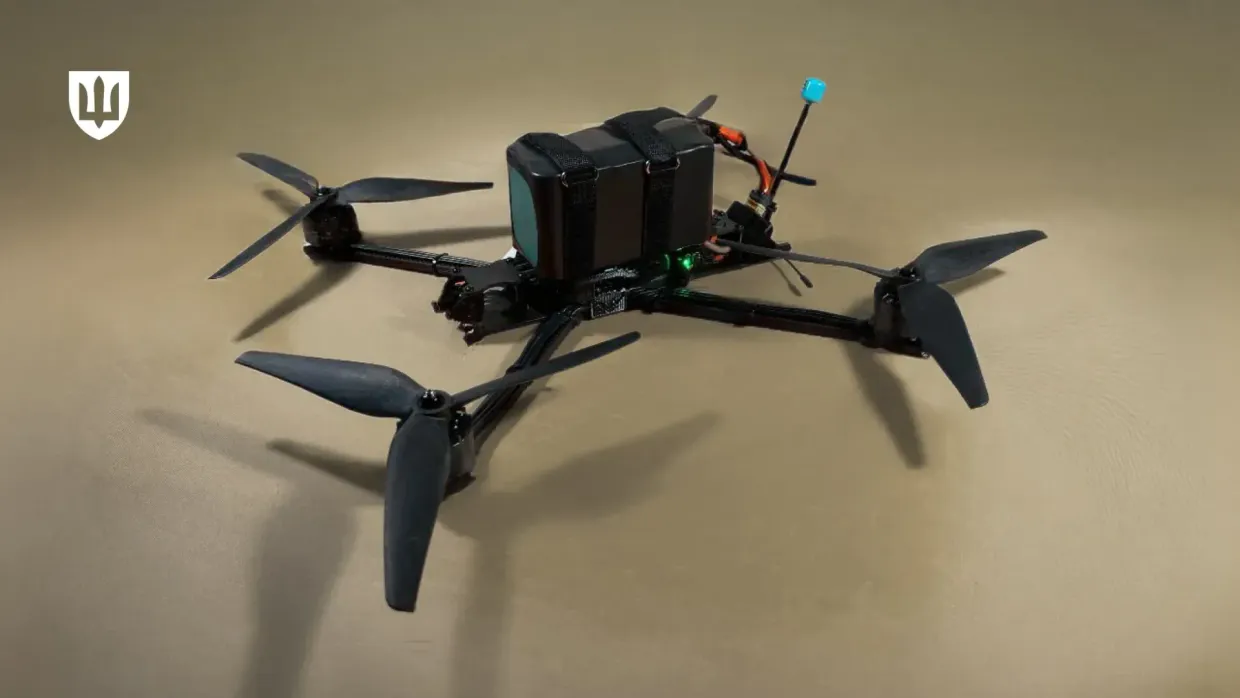
Russia’s withdrawal from Ukraine condition for easing EU sanctions, commission saysRussia’s “unconditional withdrawal” from Ukraine is one of the main preconditions for changing or lifting EU sanctions, European Commission spokesperson Anitta Hipper told Ukrainian media outlet Suspilne on March 26.
The spokesperson emphasized that EU sanctions do not target Russia’s agricultural trade, including food, grain, and fertilizers, with third countries. She reiterated that lifting sanctions would require Russia to withdraw fully from Ukraine.
Washington has agreed to help facilitate Russian food and fertilizer exports by lowering maritime insurance costs and enhancing access to global ports and payment systems. U.S. President Donald Trump previously said that Washington is “looking at” the possibility of lifting some sanctions on Russia to secure the Black Sea ceasefire.
Moscow insists that the Black Sea ceasefire will take effect only if the West lifts sanctions on Rosselkhozbank and other financial institutions linked to food trade, restoring their access to the SWIFT payment system.
The Kremlin is also demanding the removal of sanctions on Russian food producers, exporters, and Russian-flagged cargo vessels involved in agricultural trade.
Note from the author:
Ukraine War Latest is put together by the Kyiv Independent news desk team, who keep you informed 24 hours a day, seven days a week. If you value our work and want to ensure we have the resources to continue, join the Kyiv Independent community.
‘Outright propaganda’ — Dutch university to screen ‘Russians at War’ and host panel with controversial directorA Dutch university is to screen the controversial documentary “Russians at War” and a panel discussion with its director, despite Ukrainian calls for it be be canceled because it “whitewashes… murder, rape, and torture.” Canadian-Russian director Anastasia Trofimova’s documentary has been criticize…The Kyiv IndependentYuliia Taradiuk

-
Expert negotiator dissects Ukraine-Russia ceasefire talks
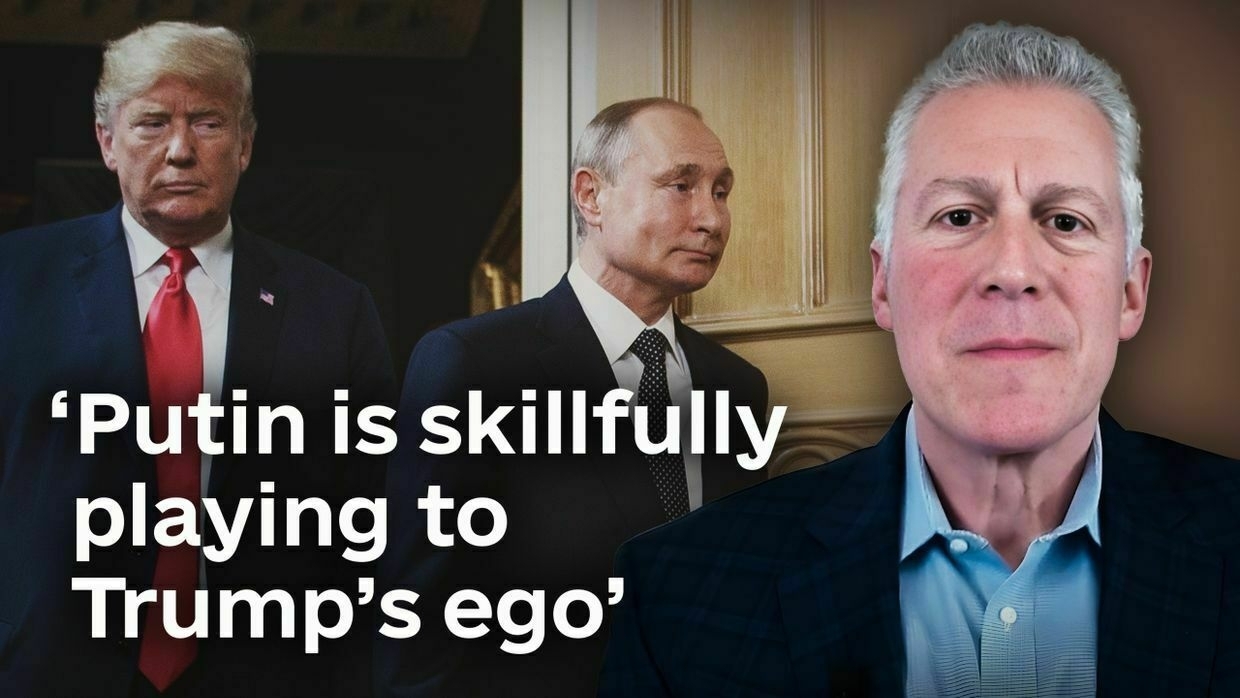
The Kyiv Independent’s Chris York sits down with Marty Latz, an expert negotiator who has spent decades examining the techniques U.S. President Donald Trump has used to make deals, to discuss Trump’s negotiation techniques as he tries to broker a ceasefire between Ukraine and Russia.
-
Zelensky arrives in France to meet Macron ahead of 'coalition of the willing' summit
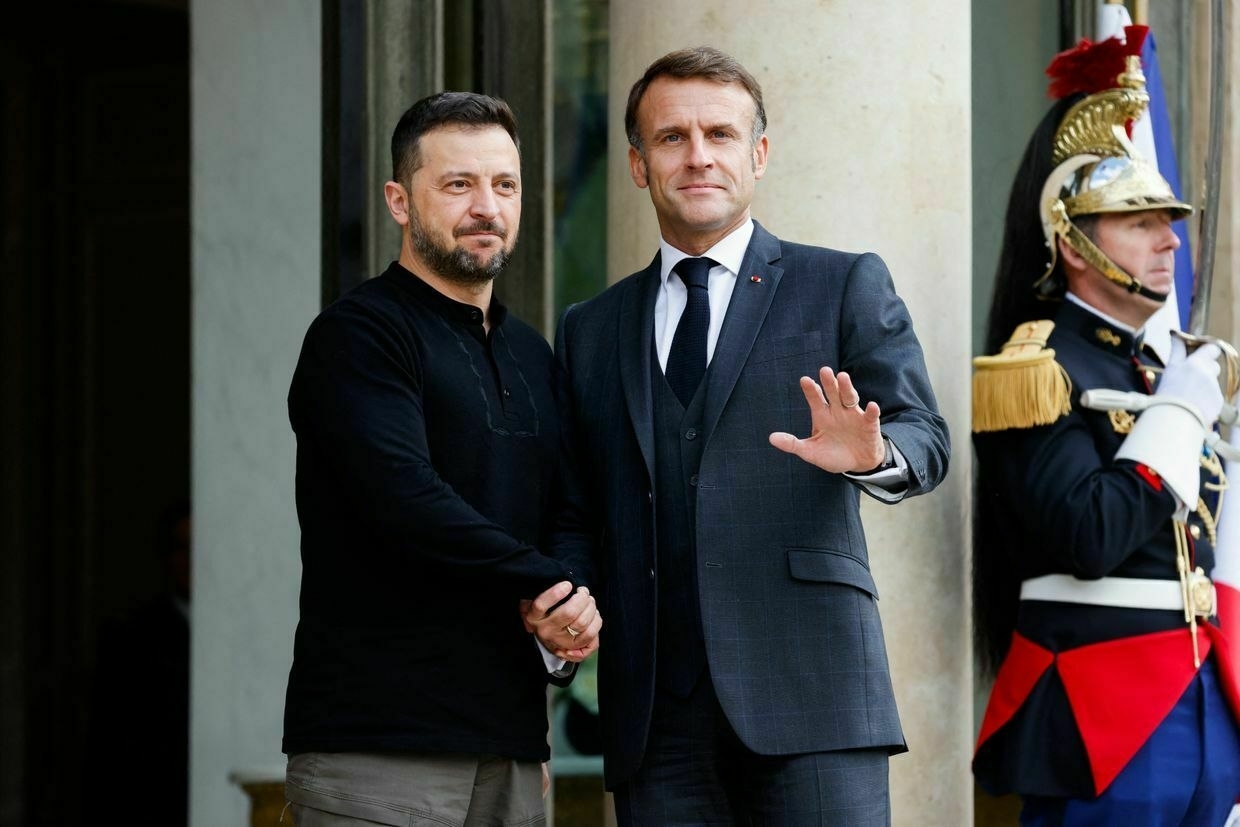
President Volodymyr Zelensky has arrived in Paris on March 26 for a meeting with his French counterpart Emmanuel Macron, Ukrainian government spokesperson Serhii Nykyforov told Suspilne.
The two presidents are expected to discuss security guarantees for Ukraine ahead of a “coalition of the willing” summit.
The Paris summit on March 27 will bring together Germany, Poland, the U.K., and other coalition members who have pledged to support Ukraine’s post-war security.
The initiative was first introduced by British Prime Minister Keir Starmer during a March 2 summit in London, where European and other leaders discussed support for Kyiv.
Over 30 countries have expressed willingness to contribute to the coalition’s peacekeeping force, Starmer’s spokesperson said on March 17, confirming that the initiative has entered an “operational phase."
U.S. President Donald Trump claimed on Feb. 24 that Russian President Vladimir Putin would allow European peacekeepers in Ukraine as part of a settlement. Russian Foreign Minister Sergey Lavrov later publicly rejected the idea.
During his meeting with Zelensky, Macron is also expected to reaffirm France’s commitment to increasing military and financial aid for Ukraine, according to Le Monde.
Russia’s sham ‘referendums’ at gunpoint are null and void, despite Steve Witkoff’s commentsU.S. Special Envoy Steve Witkoff recently claimed that the majority of people in Ukraine’s Russian-occupied territories had participated in referendums and “indicated that they want to be under Russian rule.” Witkoff’s claim is false in many ways. Witkoff referred to the Russian sham vote on the a…The Kyiv IndependentOleg Sukhov
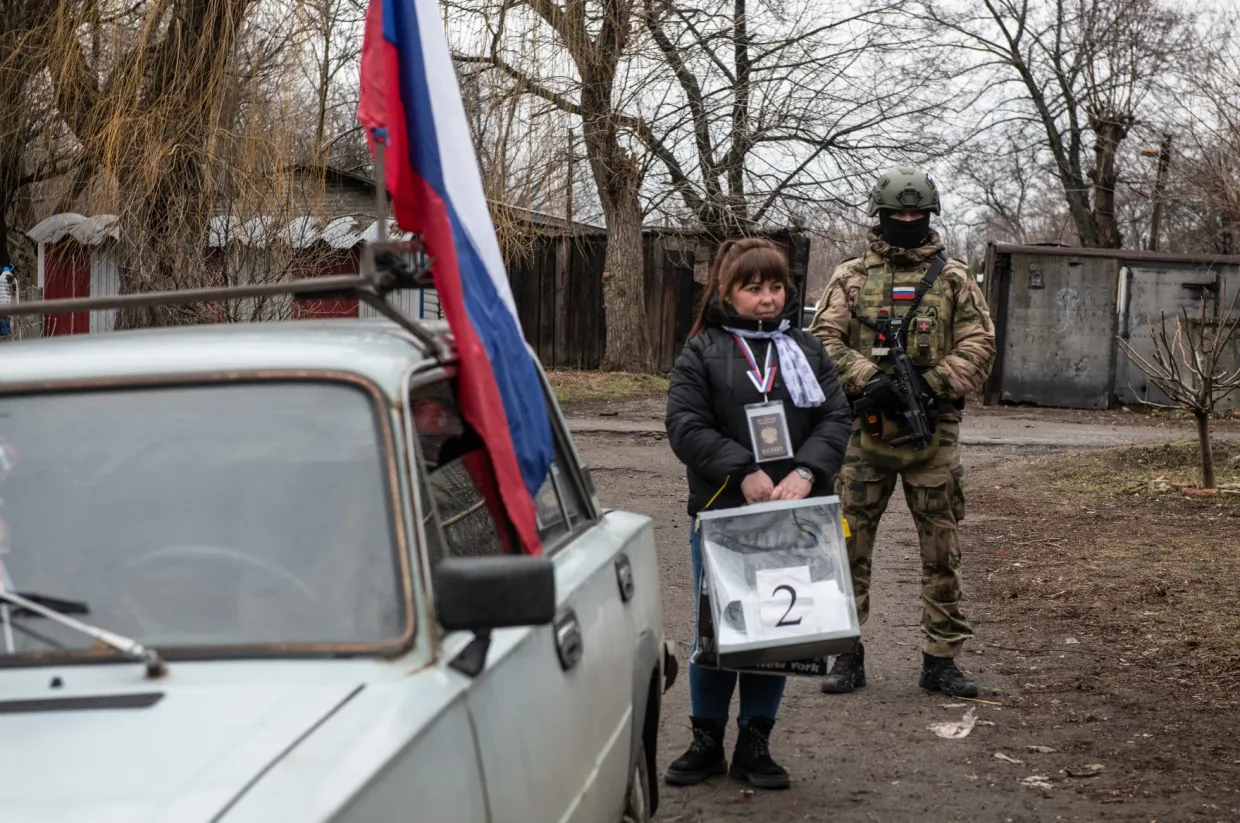
-
Lavrov: US and Russia engage in talks on reviving Nord Stream pipelines
Russian Foreign Minister Sergey Lavrov has confirmed ongoing discussions between the US and Russia regarding the Nord Stream pipelines. In an interview with Russia’s Channel One, Lavrov remarked that it would be "interesting" if the Americans leverage their influence to ensure European countries do not sever their dependence on Russian gas.
"Currently, there are indeed disagreements. But is the interest in restoring Europe's normal energy supply limited solely to the US and Russia?" Lavrov stated during an interview with Russia's "First Channel."
Lavrov noted that Europe and its businesses are now paying significantly more for energy compared to their American counterparts. He labeled politicians who oppose reviving the Nord Stream pipelines as "insane or suicidal." Among those specifically mentioned were Germany's Vice Chancellor and Economy Minister Robert Habeck, European Commission President Ursula von der Leyen, and German Defense Minister Boris Pistorius.
Concluding his remarks, Lavrov asserted that Russia has no illusions regarding the situation, as its bilateral relations with the U.S. have reached a deadlock due to the Biden administration's actions. However, he highlighted that representatives of the Trump administration aim to make these ties mutually beneficial and based on mutual respect. According to Lavrov, there is a consensus between the sides to prevent differences between the two nuclear-armed states from escalating into confrontation.
Previously, the Financial Times reported that Matthias Warnig, former CEO of Nord Stream 2 AG and a close associate of Vladimir Putin, devised a plan to restart Nord Stream 2 operations in Europe with support from American investors. This initiative would necessitate the US lifting sanctions against Russia, Russia agreeing to resume sales halted during the war, and Germany allowing gas sales to any potential buyers across Europe.
-
Ukraine denies Russian accusations of ceasefire violation
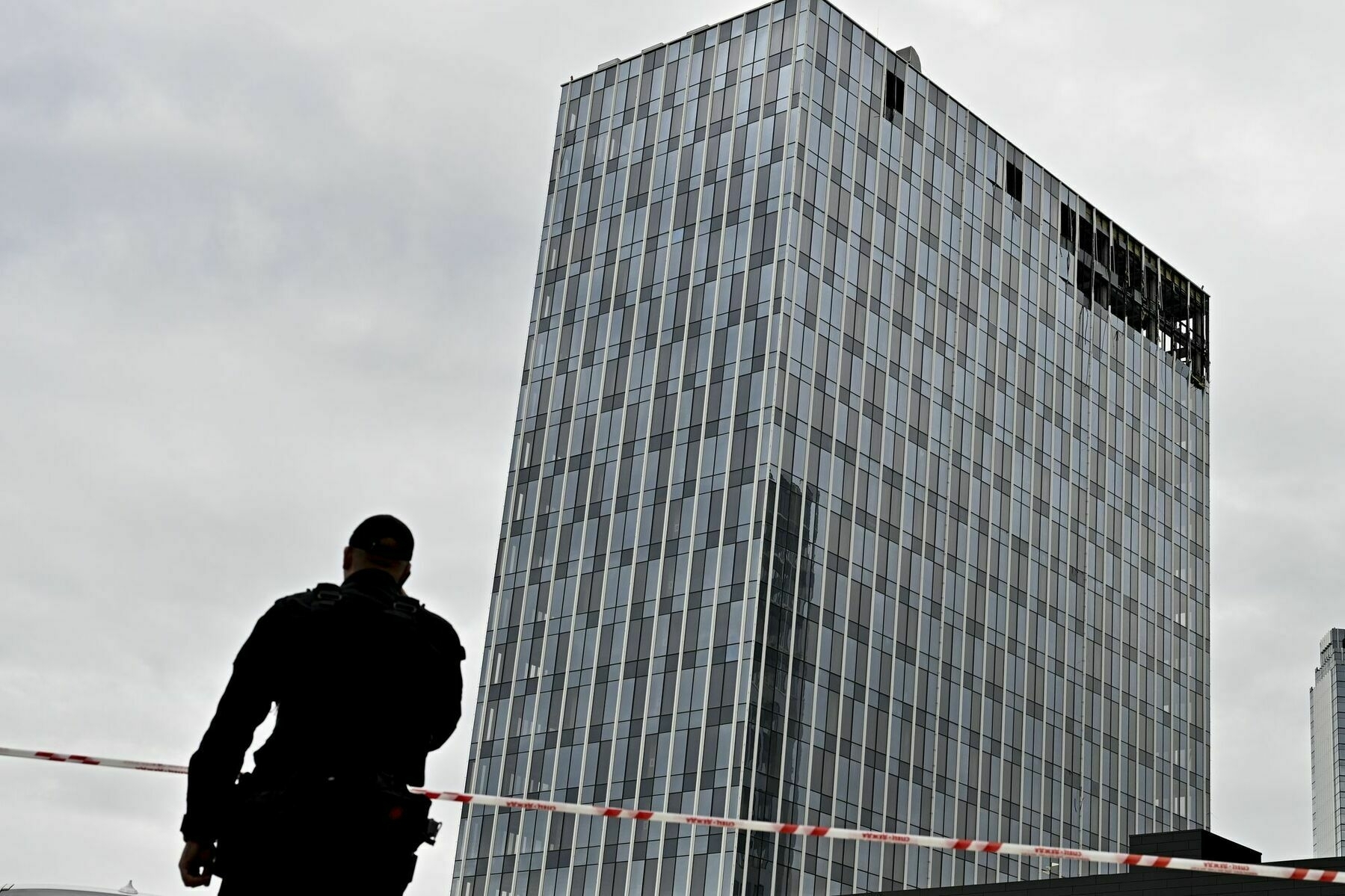
The Ukrainian military denied it had launched a drone attack at energy facilities in Russia and occupied Crimea after Moscow alleged Ukraine had violated a partial ceasefire agreement that included a ban of strikes against energy infrastructure.
After separate rounds of talks between the U.S., Russia, and Ukraine in Riyadh, Kyiv and Moscow on March 25 agreed to a halt on strikes against energy facilities and “the use of force” in the Black Sea.
“It should be highlighted that the military department of the aggressor country is spreading false and groundless accusations in order to prolong the war and continue its false propaganda and typical attempts to deceive the world,” Ukraine’s General Staff said.
Earlier in the day, the Russian Defense Ministry reported attacks by Ukrainian drones in Bryansk and Kursk oblasts, as well as in Crimea between March 25 and 26.
Russian Deputy Prime Minister Alexander Novak also accused Kyiv of new attacks on Russia’s energy infrastructure, without providing any evidence.
Despite the agreement between U.S. President Donald Trump and his Russian counterpart, Vladimir Putin a week ago, Russia has continued its regular campaign of aerial attacks against Ukrainian cities and infrastructure.
Since March 18, Ukraine has recorded eight confirmed hits against its energy facilities by Russian forces, presidential advisor Dmytro Lytvyn said on March 25.
Russia has also continued to target civilian infrastructure over the past week. An attack on a residential area in Sumy on March 24 injured more than 100 people, including 24 children, Ukrainian officials said.
Moscow has claimed that the Black Sea ceasefire would take effect only after some Western sanctions were lifted, while alleging that the energy truce had been in effect since March 18.
‘Not what Ukraine needs’ — Black Sea ceasefire favors Russia more than Ukraine, say expertsWhile the White House celebrates a ceasefire in the Black Sea after a 12-hour meeting in Riyadh, in Ukraine, the enthusiasm is muted. The agreement is missing crucial securities that Ukraine urgently needs, including protecting its ports from Russian attacks as well as opening up the blockaded Myko…The Kyiv IndependentDominic Culverwell
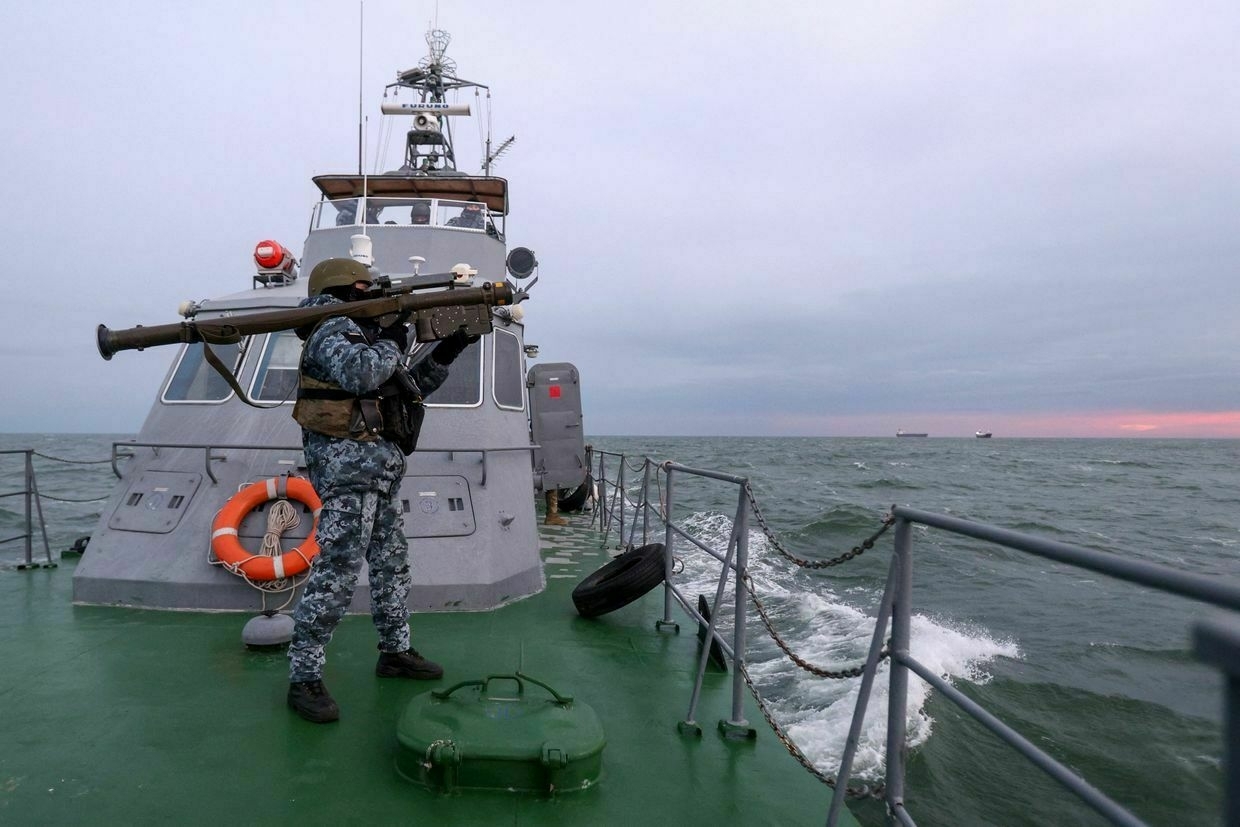
-
Russia's withdrawal from Ukraine condition for easing EU sanctions, commission says
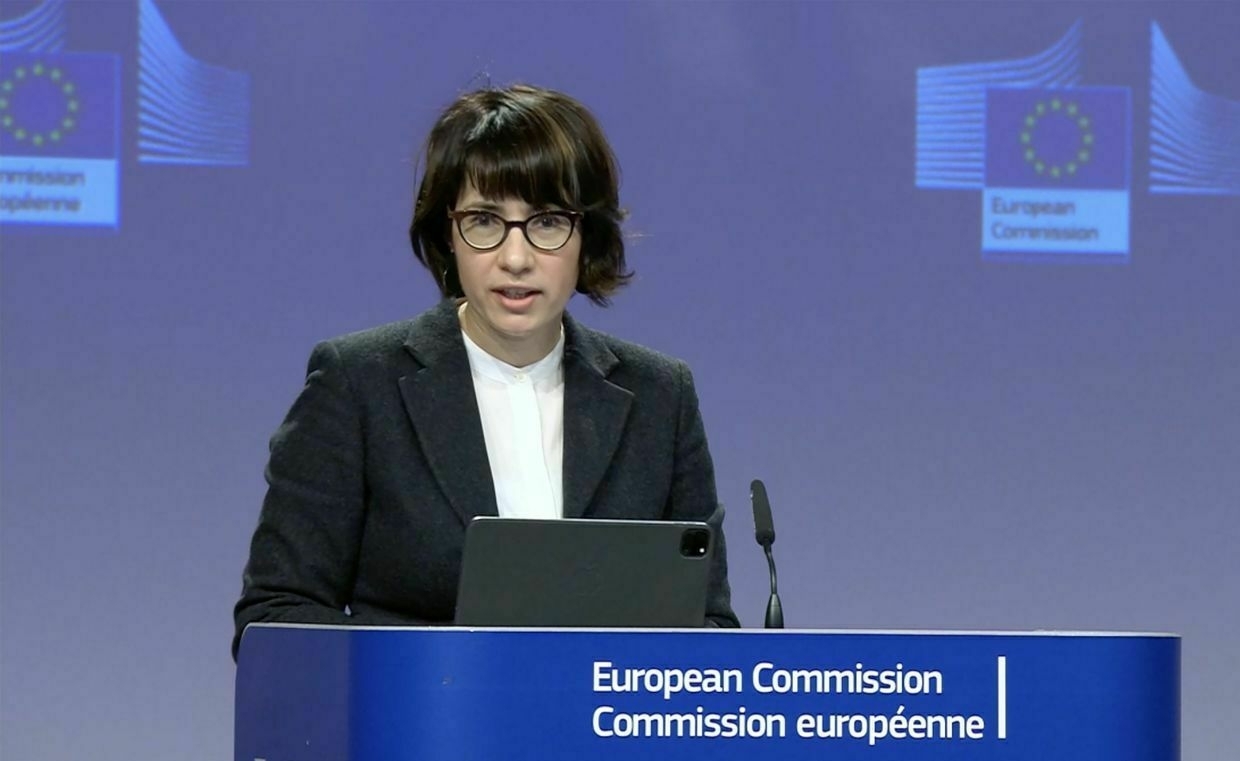
Russia’s “unconditional withdrawal” from Ukraine is one of the main preconditions for changing or lifting EU sanctions, European Commission spokesperson Anitta Hipper told Ukrainian media outlet Suspilne on March 26.
Hipper’s statement follows Russia’s demand that Western sanctions on its agricultural exports be lifted before implementing a ceasefire in the Black Sea.
The spokesperson emphasized that EU sanctions do not target Russia’s agricultural trade, including food, grain, and fertilizers, with third countries. She reiterated that lifting sanctions would require Russia to withdraw fully from Ukraine.
Following two days of talks in Riyadh, on March 25, Ukraine, Russia, and the U.S. agreed to implement a ceasefire in the Black Sea and a ban on strikes against energy infrastructure. Unlike Russia, Ukraine and the U.S. did not directly link the deal to sanctions relief.
Washington has agreed to help facilitate Russian food and fertilizer exports by lowering maritime insurance costs and enhancing access to global ports and payment systems. U.S. President Donald Trump previously said that Washington is “looking at” the possibility of lifting some sanctions on Russia to secure the Black Sea ceasefire.
Moscow insists that the Black Sea ceasefire will take effect only if the West lifts sanctions on Rosselkhozbank and other financial institutions linked to food trade, restoring their access to the SWIFT payment system.
The Kremlin is also demanding the removal of sanctions on Russian food producers, exporters, and Russian-flagged cargo vessels involved in agricultural trade.
The EU’s sanctions framework includes economic restrictions on over 2,400 individuals and entities tied to Russia.
Poland can withstand invasion for 2 weeks before NATO steps in, security chief says“I think, depending on how this fight goes, this defense can be carried out within a week or two at today’s inventory levels,” Dariusz Lukowski, head of Poland’s National Security Bureau, said.The Kyiv IndependentTim Zadorozhnyy
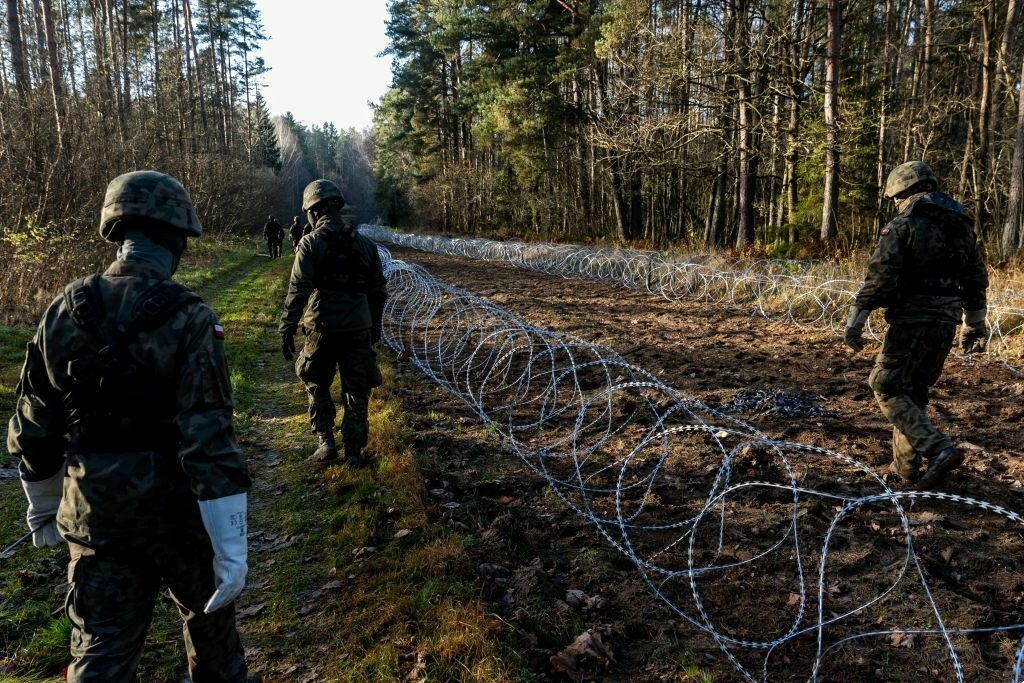
-
'117 proofs in our skies' — Zelensky says overnight drone strike shows Moscow not ready for peace
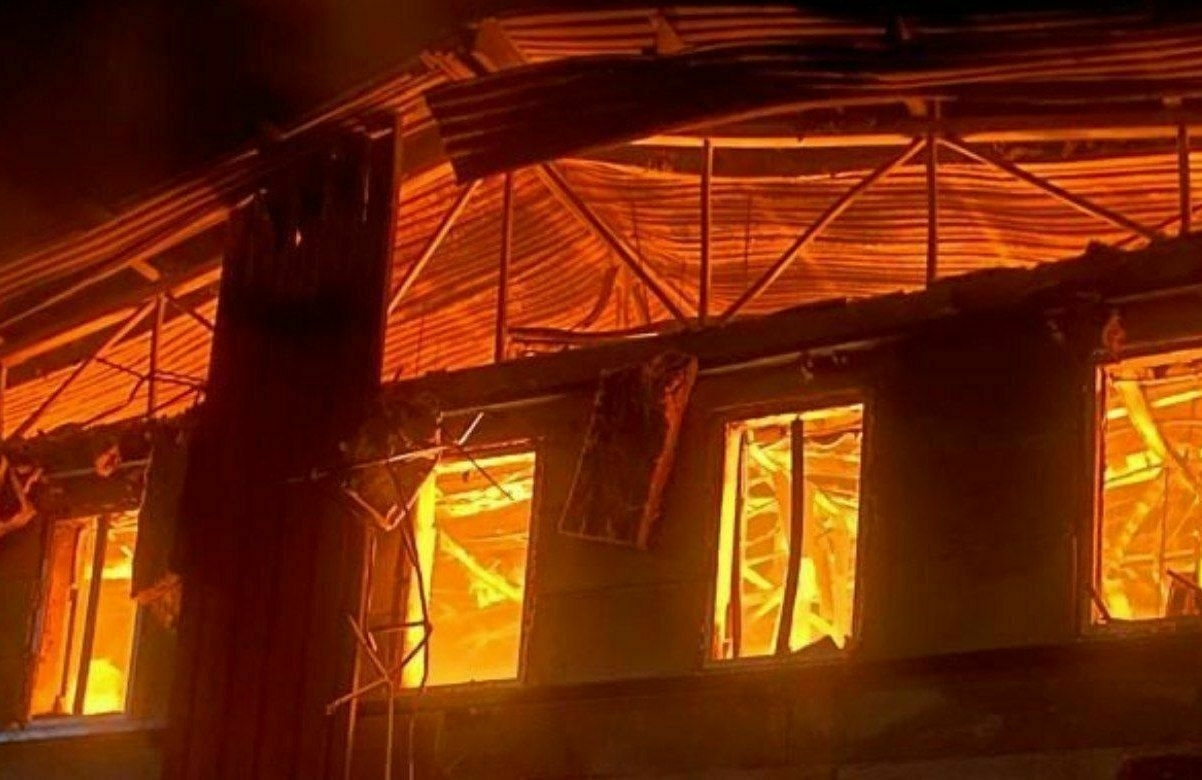
Russia launched 117 drones against Ukraine overnight on March 26, demonstrating Moscow’s intent to prolong the war, President Volodymyr Zelensky said on X.
The statement comes after the U.S. brokered a ceasefire on March 25 between Ukraine and Russia on strikes against energy facilities and Black Sea naval operations.
“Last night, there were another 117 proofs in our skies of how Russia continues to drag out this war – 117 strike drones, most of them Shaheds,” Zelensky said.
“A significant number were shot down by our air defenders."
Ukrainian air defenses shot down 56 drones across the country, while 48 decoys disappeared from radars without causing damage, the Air Force said.
Hits were recorded in the Sumy, Dnipropetrovsk, Kirovohrad, and Cherkasy oblasts.
A Russian attack on the town of Okhtyrka in Sumy Oblast damaged two apartment buildings, four shops, an administrative building, several cars, outbuildings, and market kiosks.
A drone attack against Kryvyi Rih in Dnipropetorvsk Oblast started multiple fires and damaged an administrative building, warehouses, an enterprise, and six cars.
0:00/The aftermath of Russian drone attacks against Sumy Oblast, Ukraine, overnight on March 26, 2025. (President Volodymyr Zelensky/Telegram) At least four civilians were killed and six injured in Russian attacks across Ukraine over the past day, regional authorities said.
Ukraine’s president called for “clear pressure and strong action from the world on Russia – more pressure, more sanctions from the United States – to stop Russian strikes."
“Launching such large-scale attacks after ceasefire negotiations is a clear signal to the whole world that Moscow is not going to pursue real peace,” Zelensky said.
The president underscored that the U.S. and Ukraine agreed on a full 30-day truce on March 11 during talks in Jeddah, but Russia has rejected the proposal.
Russian President Vladimir Putin refused a broader ceasefire in a phone call with U.S. President Donald Trump on March 18 unless the deal included conditions undermining Ukraine’s defenses, including a halt on foreign military aid.
In turn, the Kremlin claimed the same day it had ordered a halt on strikes against Ukraine’s energy targets. Zelensky’s advisor, Dmytro Lytvyn, disputed this statement, saying on March 25 that Ukrainian energy facilities have been hit at least eight times since March 18.
“And literally every night, through its attacks, Russia keeps saying ‘no’ to our partners’ peace proposal,” Zelensky said.
‘Not what Ukraine needs’ — Black Sea ceasefire favors Russia more than Ukraine, say expertsWhile the White House celebrates a ceasefire in the Black Sea after a 12-hour meeting in Riyadh, in Ukraine, the enthusiasm is muted. The agreement is missing crucial securities that Ukraine urgently needs, including protecting its ports from Russian attacks as well as opening up the blockaded Myko…The Kyiv IndependentDominic Culverwell
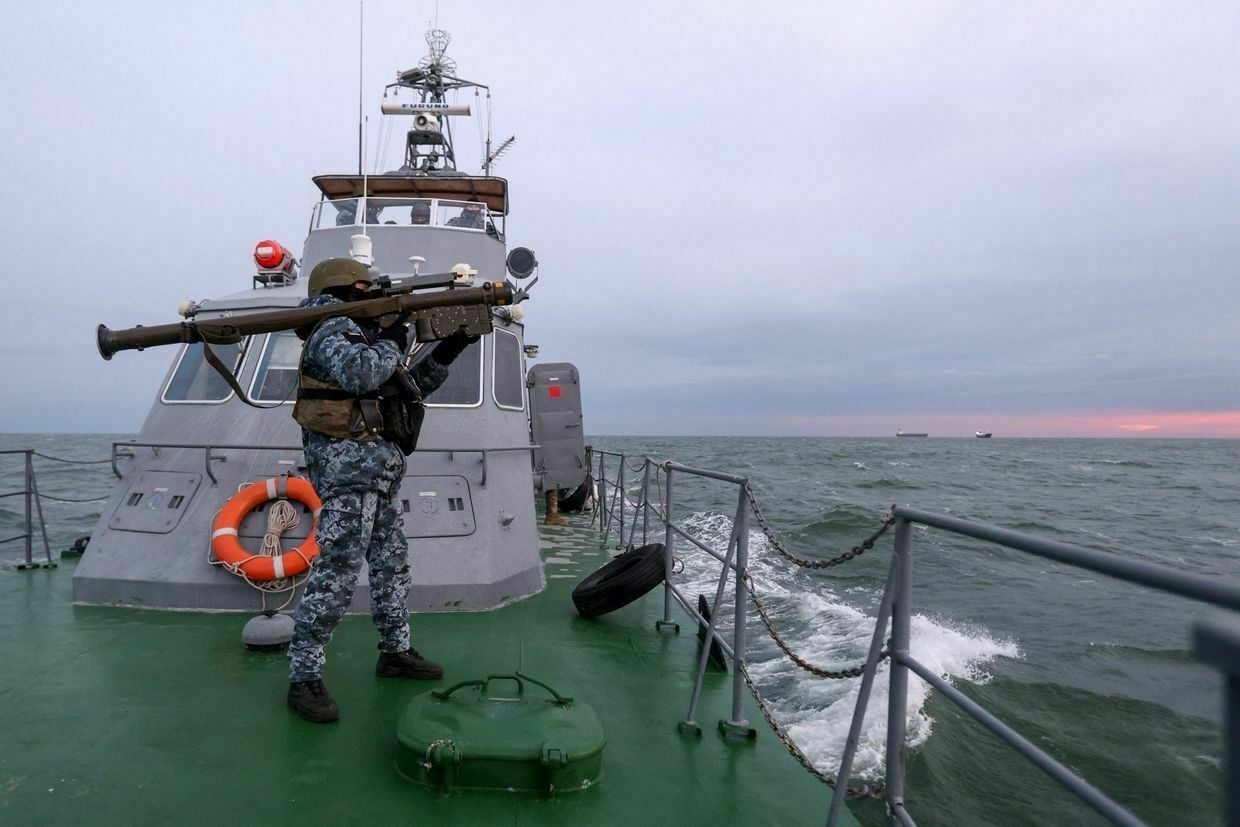
-
'There is talk of Nord Stream' — Lavrov eyes Russia-US energy cooperation
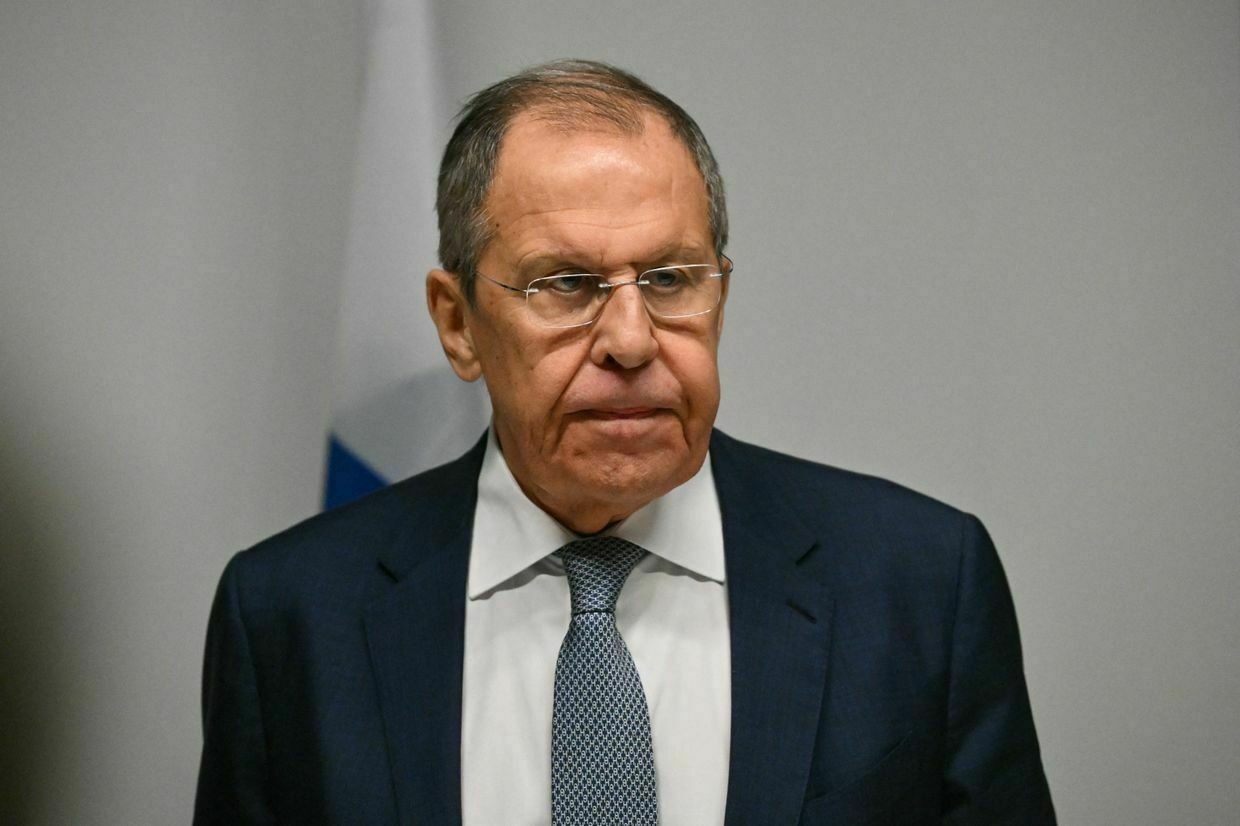
Russian Foreign Minister Sergey Lavrov claimed on March 26 that resuming Russian energy supplies to Europe is in the interest of both Moscow and Washington, alleging discussions about Nord Stream pipelines, state-owned news agency TASS reported.
“Now, of course, there are disagreements. But the interest in restoring normal energy supply to Europe is not the interest of the United States and Russia alone,” Lavrov said.
“There is talk about Nord Stream. It will probably be interesting if the Americans use their influence on Europe and force it not to give up Russian gas,” he claimed.
The Nord Stream pipelines, which connect Russia to Germany under the Baltic Sea, were key routes for Russian gas exports to Europe. Nord Stream 1 began operations in 2011, while Nord Stream 2 was completed but never became operational.
In September 2022, three of the four pipelines were severely damaged in an apparent sabotage attack. The incident effectively ended Russian gas flows to Europe through the route, forcing EU nations to diversify energy supplies.
Lavrov accused European leaders of blocking efforts to restore Nord Stream, targeting German Economy Minister Robert Habeck, European Commission President Ursula von der Leyen, and German Defense Minister Boris Pistorius.
“They all say that they will never allow Nord Stream to be restored. These are either sick people or suicides,” Lavrov claimed.
This comes as Matthias Warnig, a former East German intelligence officer and longtime ally of Russian President Vladimir Putin, is reportedly lobbying U.S. officials to support a potential restart of Nord Stream 2.
Warnig, who led the pipeline’s parent company on behalf of Kremlin-controlled gas giant Gazprom until 2023, is allegedly trying to establish contact with U.S. President Donald Trump’s team through American business figures.
Any deal to revive Nord Stream 2 would require Washington to lift sanctions and for Germany to approve resuming Russian gas imports, according to the Financial Times.
The Trump administration has sought to broker a peace deal in Ukraine while restoring ties with Russia, reportedly eyeing cooperation in the energy sector and the Arctic.
Russia may be ‘dragging their feet’ on Ukraine peace deal, Trump saysAsked by a reporter whether he believes Russia “wants to see an end” to the full-scale war, U.S. President Donald Trump said, “I don’t know. I mean, I’ll let you know at a certain point. But I think that Russia wants to see an end to it, but it could be they’re dragging their feet.”The Kyiv IndependentMartin Fornusek
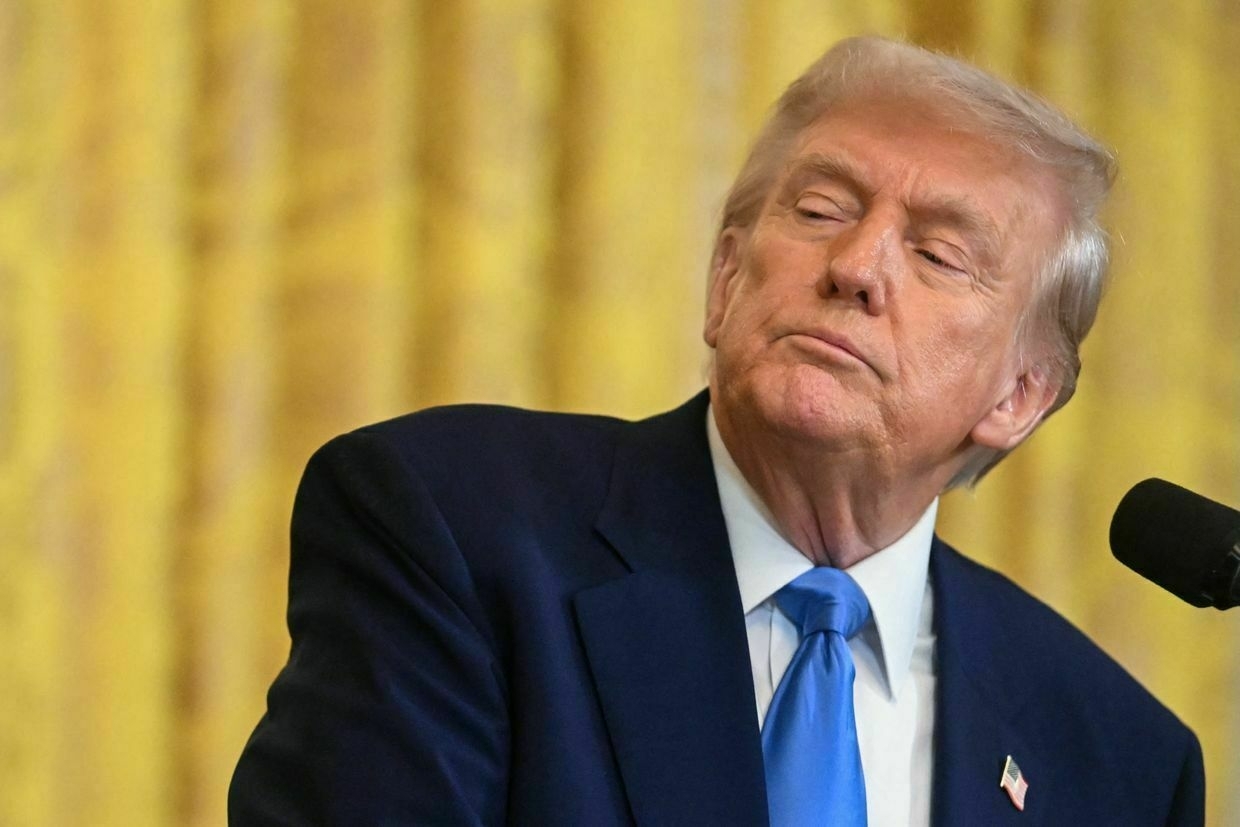
-
4 killed, 6 injured in Russian attacks against Ukraine over past day
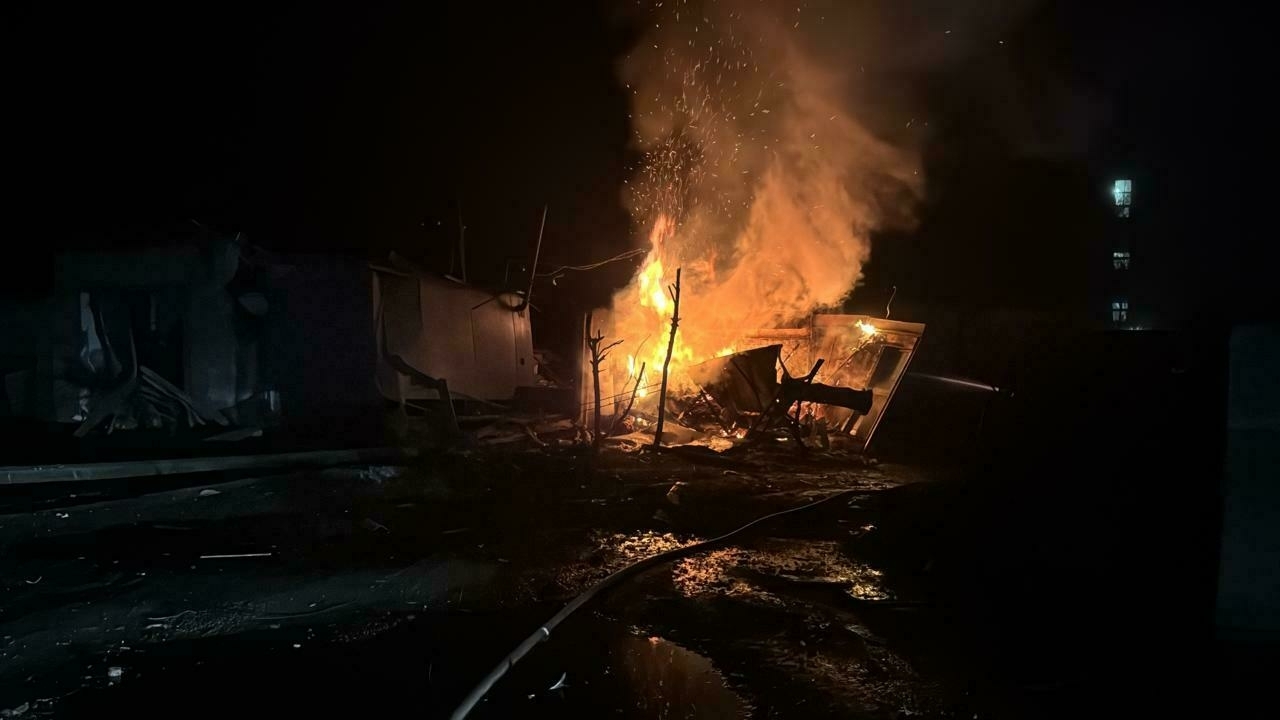
At least four people were killed and six others injured in Russian attacks across Ukraine over the past day, regional officials reported on March 26.
Ukraine’s air defenses intercepted 56 of the 117 Russian drones launched overnight, including Shahed-type attack drones. Another 48 drones reportedly disappeared from radars before reaching their targets, likely acting as decoys to overwhelm Ukraine’s air defenses.
Ukrainian anti-aircraft missile units, electronic warfare systems, aviation, and mobile fire groups repelled the attack.
In Donetsk Oblast, three residents were killed: two in Kurtivka and one in Pokrovsk. Another three people were injured, Governor Vadym Filashkin said.
A 63-year-old man was killed in Dnipropetrovsk Oblast as a result of artillery strikes and kamikaze drone attacks, Governor Serhii Lysak wrote.
In Kherson Oblast, three people were injured as Russian forces attacked social infrastructure and residential areas, damaging two high-rise buildings and 12 houses, Governor Oleksandr Prokudin reported.
A Russian attack on the town of Okhtyrka in Sumy Oblast damaged two apartment buildings, four shops, an administrative building, several cars, outbuildings, and market kiosks. According to the regional military administration, there were no casualties.
Russia may be ‘dragging their feet’ on Ukraine peace deal, Trump saysAsked by a reporter whether he believes Russia “wants to see an end” to the full-scale war, U.S. President Donald Trump said, “I don’t know. I mean, I’ll let you know at a certain point. But I think that Russia wants to see an end to it, but it could be they’re dragging their feet.”The Kyiv IndependentMartin Fornusek
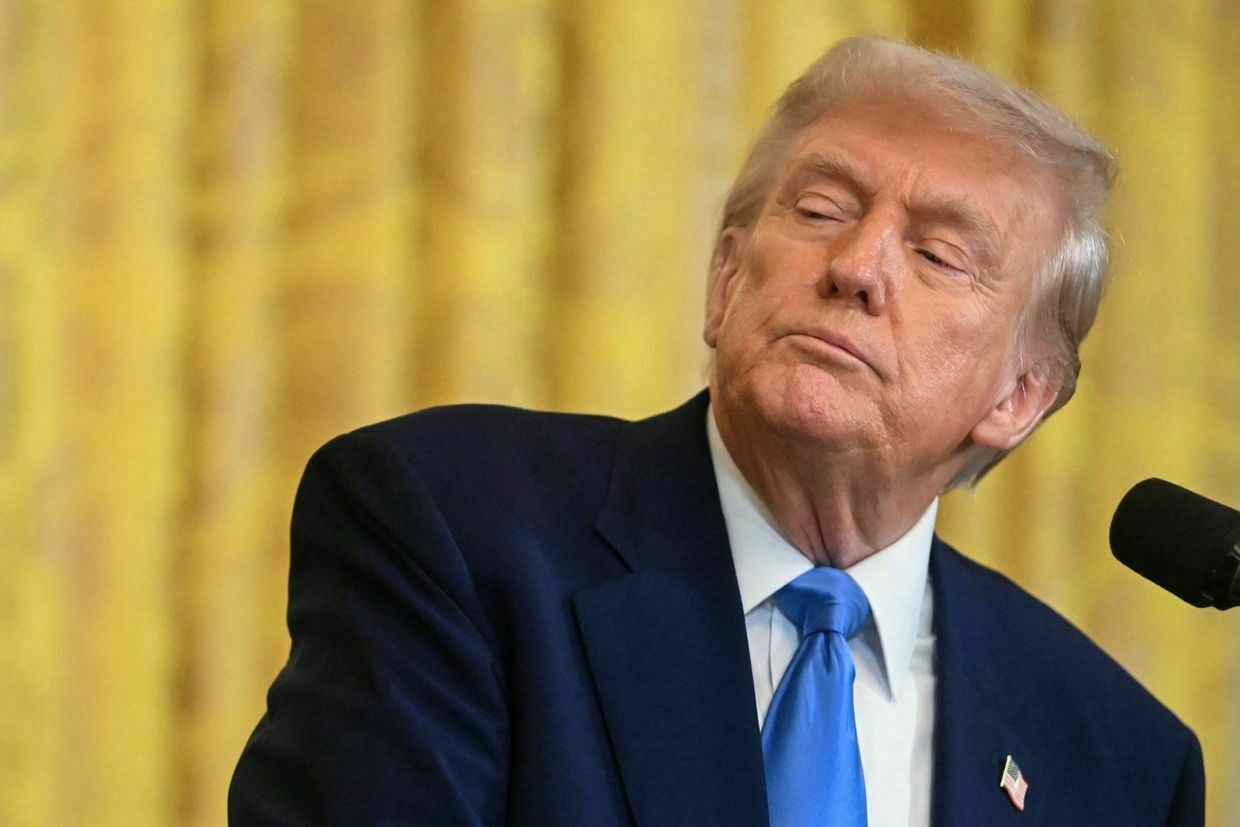
-
US judge temporarily blocks Trump administration from shutting down RFE/RL
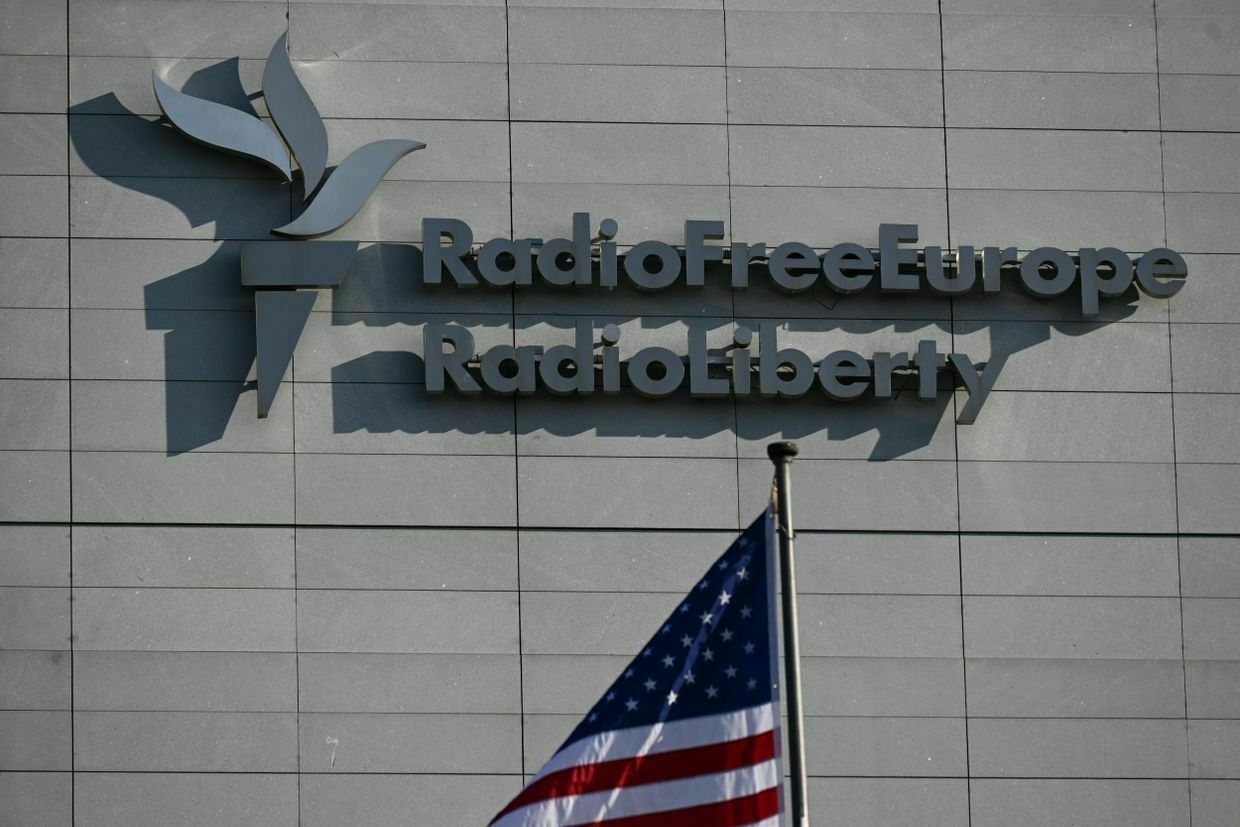
A U.S. federal judge has temporarily blocked the Trump administration from shutting down Radio Free Europe/Radio Liberty (RFE/RL), ABC News reported on March 25.
RFE/RL, founded during the Cold War to counter Soviet propaganda, remains a key independent news source for audiences in countries with restricted media environments.
Judge Royce Lamberth issued a temporary restraining order, ruling that the administration’s attempt to defund the organization was “unsupported by any facts or reasoning” and likely violated federal law.
“The leadership of (U.S. Agency for Global Media) cannot, with one sentence of reasoning offering virtually no explanation, force RFE/RL to shut down — even if the President has told them to do so,” Lamberth wrote.
The ruling comes after U.S. President Donald Trump eliminated seven federal agencies on March 14, including the U.S. Agency for Global Media (USAGM), which oversees RFE/RL and Voice of America (VoA).
The decision cut off congressionally approved funding for RFE/RL, while VoA employees were placed on administrative leave.
RFE/RL sued USAGM on March 18, arguing that the funding termination violated federal law and the U.S. Constitution.
Trump’s allies have publicly questioned the court’s authority over executive decisions, raising concerns about a looming constitutional conflict.
U.S. courts have previously intervened to stall some of Trump’s major cuts, including efforts to dismantle the U.S. Agency for International Development (USAID).
Critical Ukraine coverage at risk as Trump slashes Radio Free Europe fundingThe U.S. decision to cut off funding for Radio Free Europe/Radio Liberty came as a surprise for the outlet’s newsroom, a source in the RFE/RL’s Ukrainian Service told the Kyiv Independent. “We understood that the U.S. president, to put it mildly, does not like us,The Kyiv IndependentKateryna Denisova
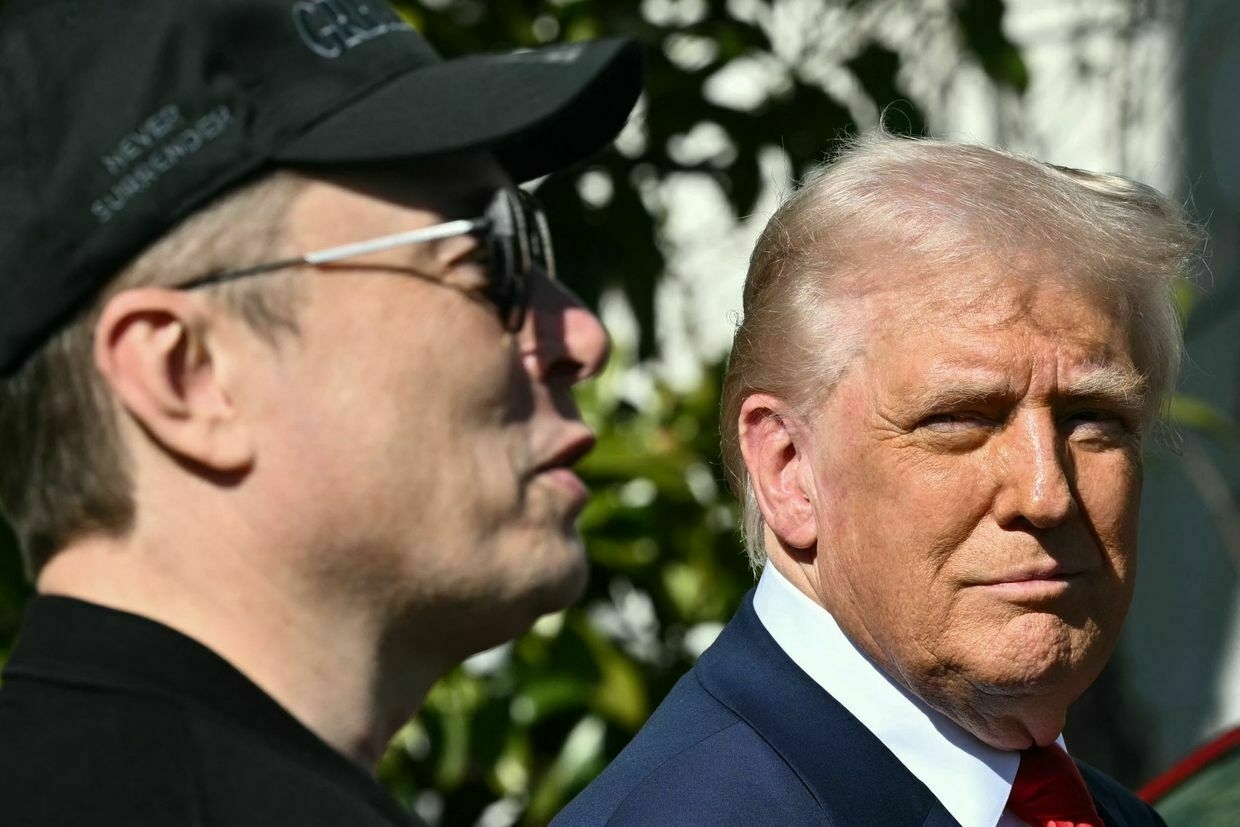
-
Trump's envoy draws criticism after saying nuclear arms in Ukraine were 'Russia's'
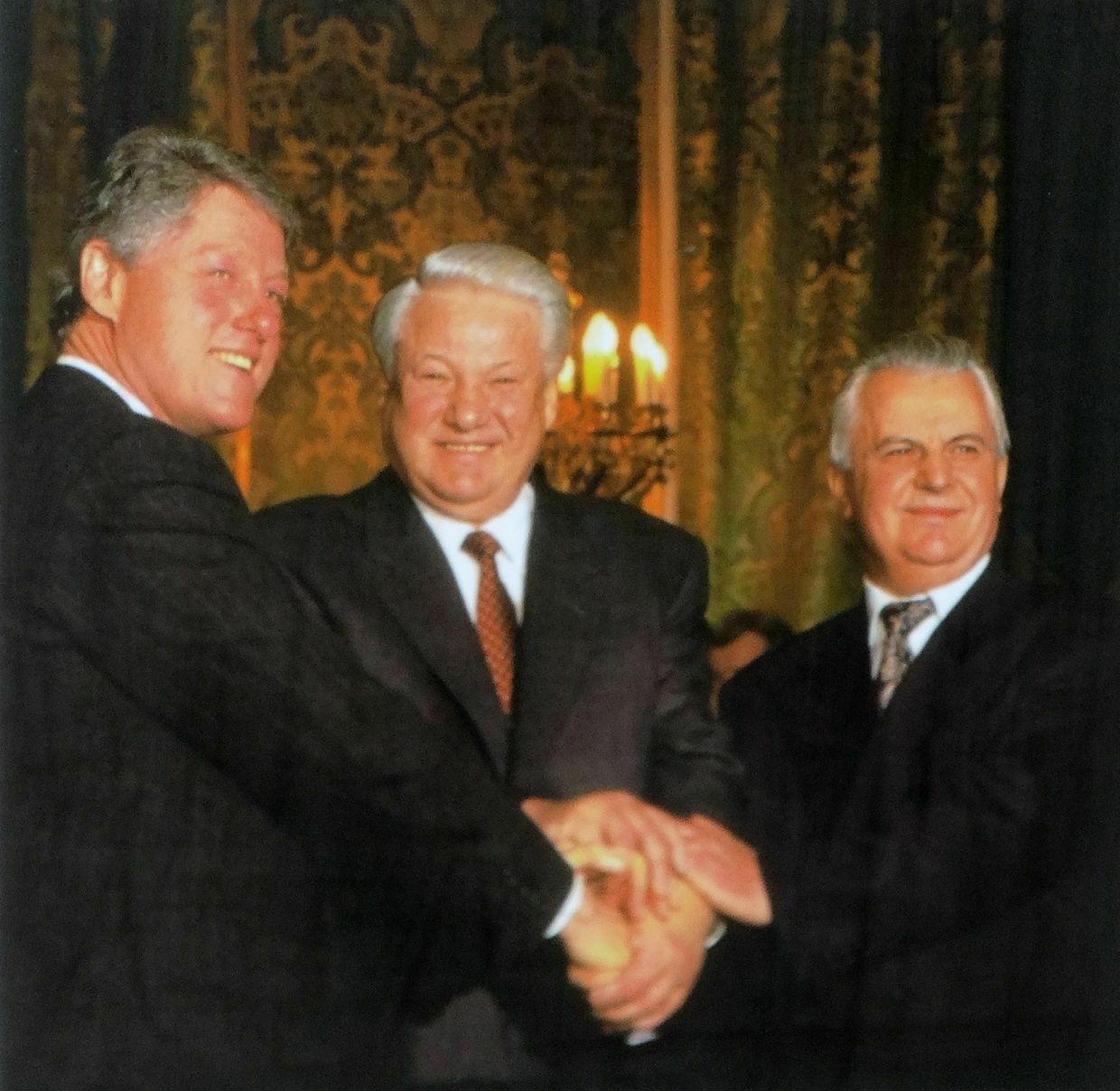
U.S. President Donald Trump’s Special Envoy Richard Grenell said on March 25 that the Soviet-era nuclear arsenal stationed in Ukraine after the Soviet Union’s collapse belonged to Russia, calling it an “uncomfortable fact."
“Let’s be clear about the Budapest Memorandum: the nukes were Russia’s and were leftovers,” Grenell said on X.
Ukraine agreed to relinquish its nuclear arms after signing the 1994 Budapest Memorandum, which also saw the country join the Treaty on the Non-Proliferation of Nuclear Weapons.
In exchange, Kyiv received security assurances from major powers, including the U.S., the U.K., and Russia. These guarantees failed to prevent Moscow’s aggression in 2014 in Crimea and Donbas and the full-scale invasion of Ukraine in 2022.
“Ukraine gave the nukes back to Russia. They weren’t Ukraine’s. This is an uncomfortable fact,” Grenell said.
Responding to Trump’s envoy, former U.S. Ambassador to Ukraine Steven Pifer said that “Grenell is flat wrong."
“I helped negotiate Budapest Memorandum… Nuclear warheads in Ukraine were ex-Soviet, not Russian."
Stored warheads were in sole Ukrainian custody, while intercontinental ballistic missiles and bomber planes were eliminated, except for those sent to Russia for “debt relief,” the former ambassador said.
Pifer reinforced his point by saying that conventional weapons capabilities left in Ukraine after the Soviet Union fell apart, including tanks, artillery, and warplanes, also belonged to Kyiv rather than Moscow.
“They were Soviet, you ignorant a** helmet. So they were as equally Ukraine’s as Russia’s. This is day one knowledge,” said former Congressman Adam Kinziger, who has been a vocal supporter of Ukraine during the full-scale war.
Grenell’s comments also found support. Mike Lee, a Republican senator who strongly opposed support for Kyiv and called for a U.S. exit from NATO, shared the envoy’s post while saying, “The nukes didn’t belong to Ukraine. And there was never a treaty binding the U.S. to the Budapest Memorandum."
The Budapest Memorandum has been sharply criticized by today’s Ukrainian leadership over its lack of strong security guarantees.
‘Not what Ukraine needs’ — Black Sea ceasefire favors Russia more than Ukraine, say expertsWhile the White House celebrates a ceasefire in the Black Sea after a 12-hour meeting in Riyadh, in Ukraine, the enthusiasm is muted. The agreement is missing crucial securities that Ukraine urgently needs, including protecting its ports from Russian attacks as well as opening up the blockaded Myko…The Kyiv IndependentDominic Culverwell
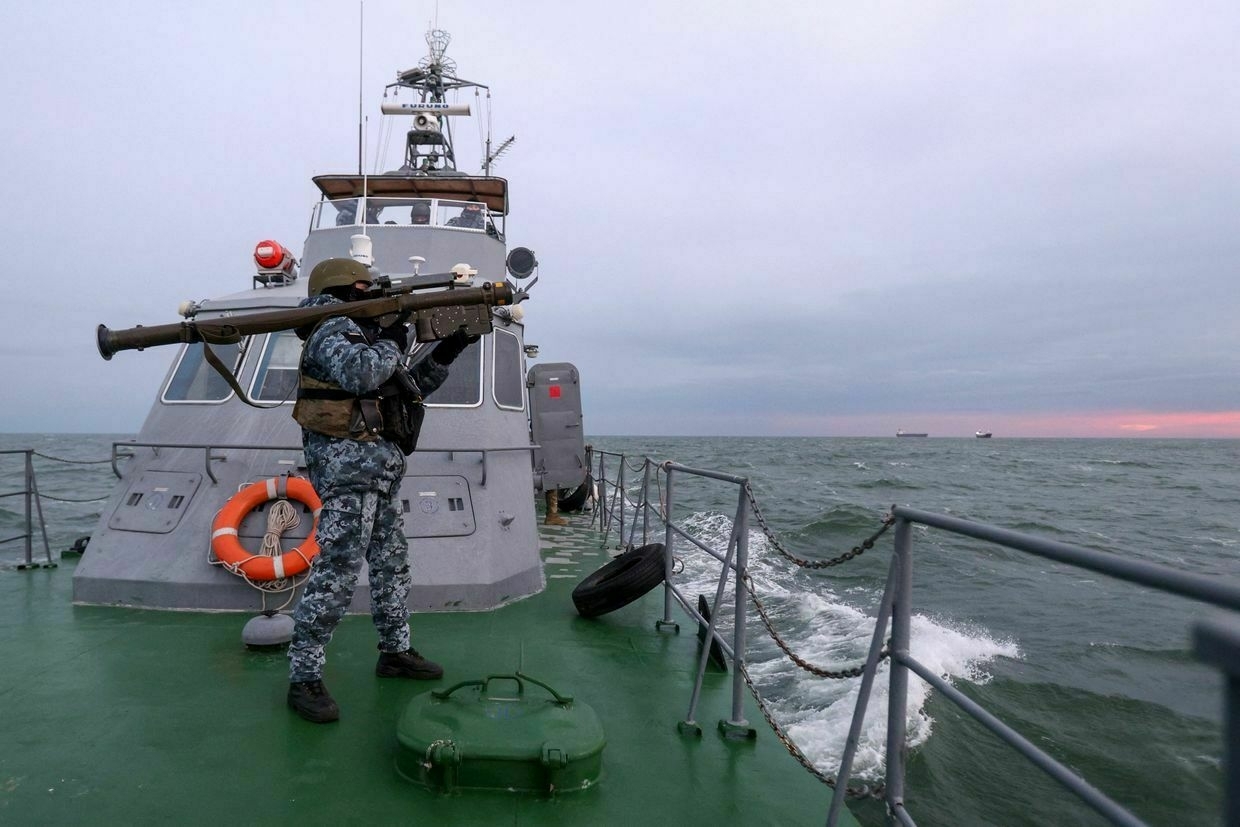
-
Ukraine will resist 'with their bare hands' if forced into unjust peace, CIA chief says
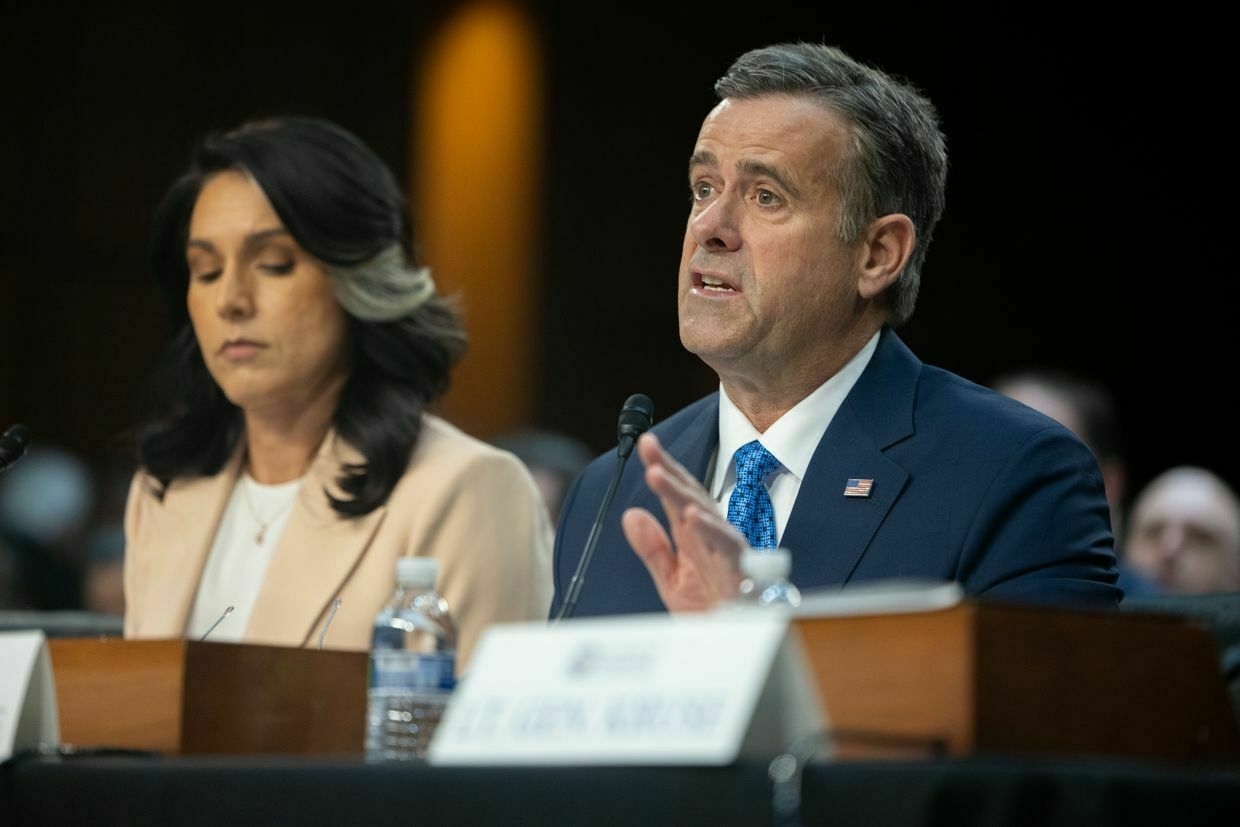
Ukrainian forces will fight even with “their bare hands” if they do not receive conditions acceptable for lasting peace, CIA Director John Ratcliffe said during a U.S. Senate hearing on March 25.
“I want to say that with regard to the Ukrainian resistance, the Ukrainian people and the Ukrainian military have been underestimated for a period of several years now,” Ratcliffe said.
“From my reflections in observing, from an intelligence standpoint, I’m convinced that they will fight with their bare hands if they have to, if they don’t have terms that are acceptable to an enduring peace."
The statement comes amid U.S. President Donald Trump’s ongoing efforts to broker a ceasefire and a broader peace agreement between Russia and Ukraine.
Ratcliffe said that Trump is seeking to end the war under conditions that will ensure a lasting peace. He added that the CIA has taken steps to support Trump’s diplomatic efforts.
In a deal brokered by the U.S., Moscow and Kyiv have agreed to a ban on strikes targeting energy infrastructure in both Ukraine and Russia. In addition, the belligerent parties agreed to “eliminate the use of force” and prevent commercial vessels from being used for military purposes in the Black Sea.
The U.S. and Ukraine initially backed a broader 30-day ceasefire during talks in Jeddah on March 11, which included halting ground operations.
Russian President Vladimir Putin rejected Washington’s broad proposal during a call with Trump on March 18, demanding conditions that would weaken Ukraine’s defense, including a suspension of foreign military aid.
Ukraine expects the partial ceasefire covering the Black Sea and energy infrastructure strikes to take effect on March 25, President Volodymyr Zelensky said.
In turn, Russia declared on March 25 that the Black Sea ceasefire would only take effect after Western sanctions on Russian food producers and exporters are lifted.
Russia may be ‘dragging their feet’ on Ukraine peace deal, Trump saysAsked by a reporter whether he believes Russia “wants to see an end” to the full-scale war, U.S. President Donald Trump said, “I don’t know. I mean, I’ll let you know at a certain point. But I think that Russia wants to see an end to it, but it could be they’re dragging their feet.”The Kyiv IndependentMartin Fornusek
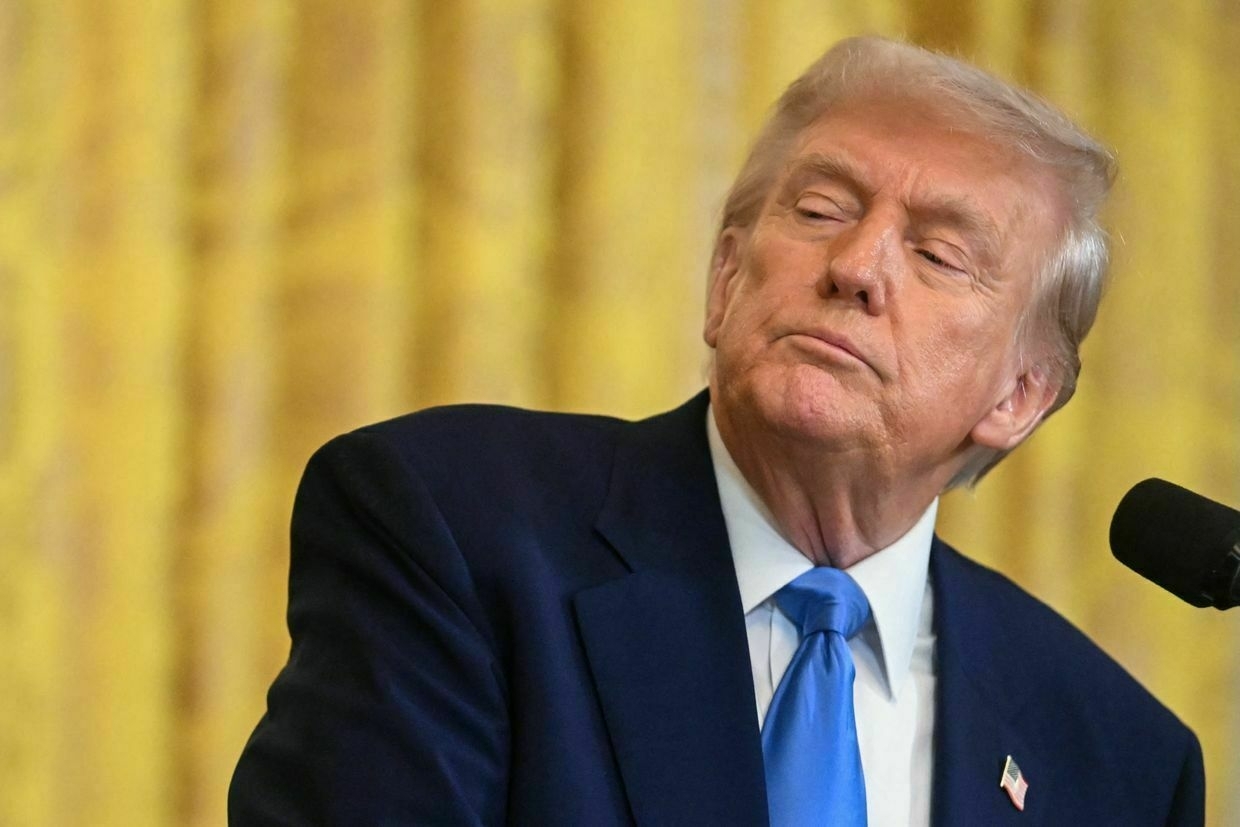
-
Russia may be 'dragging their feet' on Ukraine peace deal, Trump says
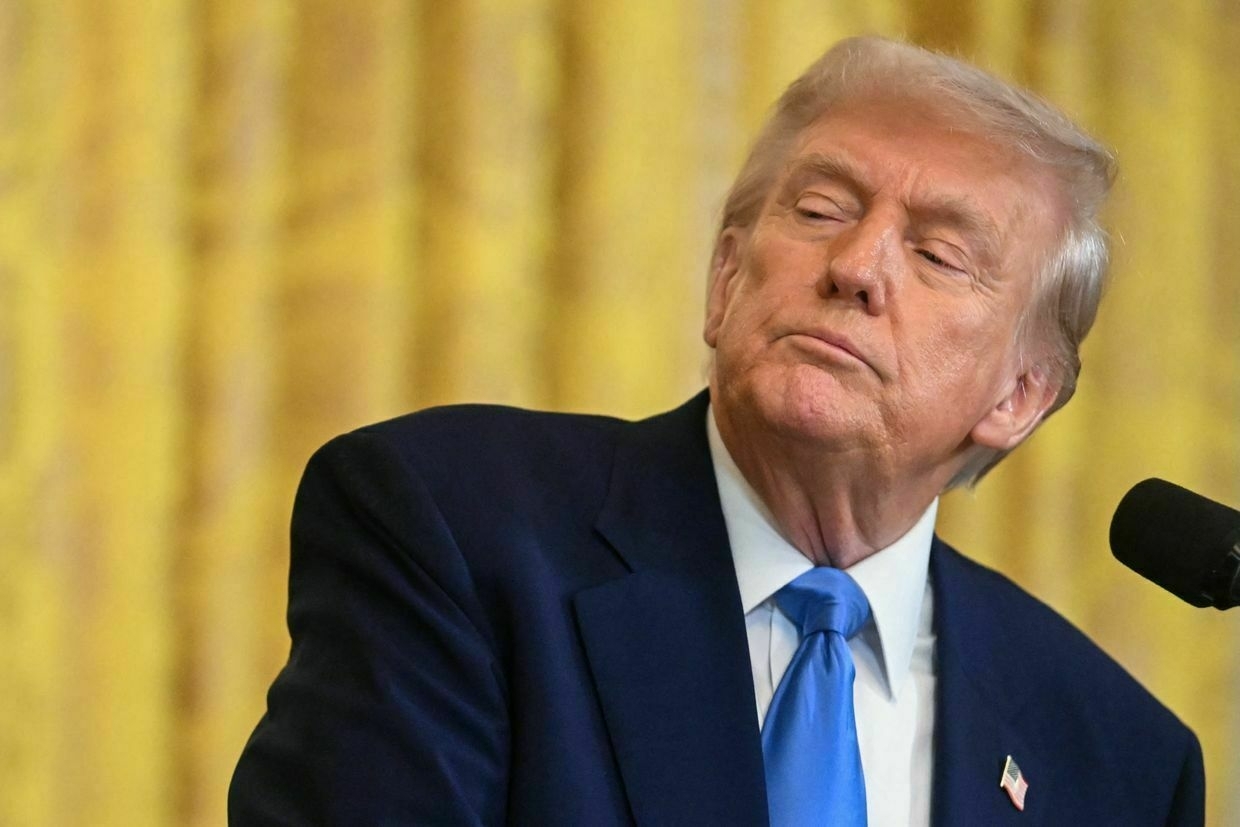
Russia may be “dragging their feet” on ending its war against Ukraine, U.S. President Donald Trump told Newsmax on March 25.
Asked by a reporter whether he believes Russia “wants to see an end” to the full-scale war, Trump said, “I don’t know. I mean, I’ll let you know at a certain point. But I think that Russia wants to see an end to it, but it could be they’re dragging their feet."
The comments come after the U.S. helped broker a partial ceasefire between Russia and Ukraine on naval operations and strikes against energy facilities.
While President Volodymyr Zelensky said the ceasefire would take effect on March 25, the Kremlin claimed that the Black Sea truce would come into force only after Western sanctions on Russian food producers and exporters are lifted.
“I’ve done it over the years, you know; ‘I don’t want to sign a contract, I want to sort of stay in the game, but maybe I don’t want to do it,'” the U.S. president said, adding that Zelensky would also “like to see it (the war) end at this point."
Trump previously said that the U.S. is “looking at” the possibility of lifting some sanctions on Russia to secure the Black Sea ceasefire.
The agreements follow a round of technical talks the U.S. delegates held separately with Russian and Ukrainian officials in Riyadh to hash out details of the truce.
According to the Moscow Times’ sources, Russia is deliberately prolonging the peace talks to seize more territory and strengthen its negotiating position with the U.S. as it believes that time is on its side.
A U.S. intelligence assessment concurred that Moscow, as well as Kyiv, may see a greater incentive to prolong the war instead of settling for an unfavorable peace deal, Bloomberg reported.
‘Not what Ukraine needs’ — Black Sea ceasefire favors Russia more than Ukraine, say expertsWhile the White House celebrates a ceasefire in the Black Sea after a 12-hour meeting in Riyadh, in Ukraine, the enthusiasm is muted. The agreement is missing crucial securities that Ukraine urgently needs, including protecting its ports from Russian attacks as well as opening up the blockaded Myko…The Kyiv IndependentDominic Culverwell
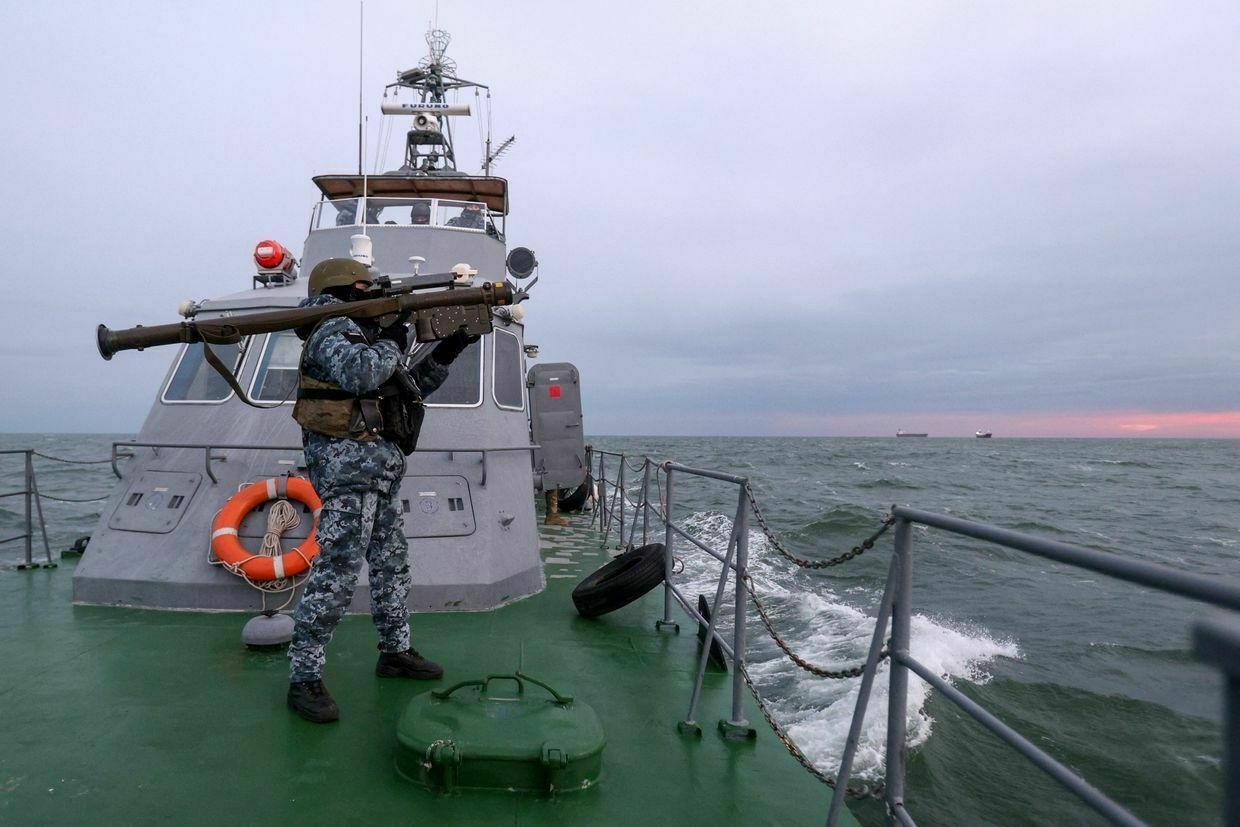
-
Zelensky accuses Russia of manipulating conditions for Black Sea ceasefire
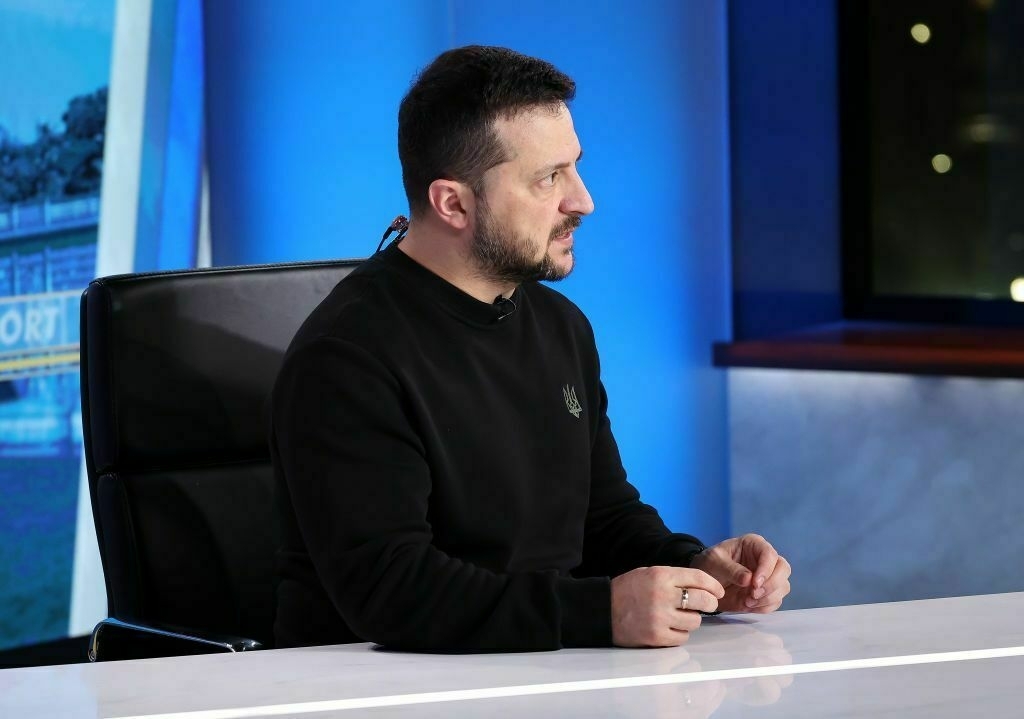
In his evening address on March 25, President Volodymyr Zelensky accused Russia of manipulating the conditions it has set out in order to secure a Black Sea ceasefire agreement.
“We see how the Russians have already started to manipulate. They are already trying to distort the agreements and actually deceive our mediators and the whole world,” Zelensky said.
Following discussions between the U.S. and Russia in Saudi Arabia, the two countries agreed on March 25 to implement a ceasefire in the Black Sea and a ban on strikes against energy infrastructure.
To secure an agreement, the White House initially vowed to help restore Russia’s access to the world market for agricultural and fertilizer exports, lower maritime insurance costs, and enhance access to ports and payment systems for such transactions.
The Kremlin later issued a statement on March 25, stating that the ceasefire in the Black Sea will take effect only after Western sanctions on Russia’s Rosselkhozbank and other financial organizations involved in supporting international food trade operations are lifted and have their connection to the SWIFT messaging system restored.
“There are absolutely clear statements published by the White House. Everyone can see what they say. And there is something that the Kremlin is lying about again: that allegedly the silence in the Black Sea depends on the issue of sanctions, and that allegedly the start date for the silence in the energy sector is March 18. Moscow always lies,” the president added.
Moscow is also demanding that the West lift the sanctions on Russian food producers and exporters, as well as on Russian-flagged ships involved in food and fertilizer trade. Another condition for the ceasefire is that commercial ships in the Black Sea should be inspected, according to the Kremlin.
In response to the additional Russian demands, U.S. President Donald Trump said that the U.S. is “looking at” lifting sanctions on Russia in order to secure a Black Sea ceasefire agreement.
The Kremlin claimed that the ban on energy strikes had been in effect since March 18 and would be valid for 30 days with the possibility of extension.
Despite the agreement between Trump and his Russian counterpart, Vladimir Putin, a week ago, Russia has continued its regular campaign of aerial attacks against Ukrainian cities and infrastructure.
Ukraine war latest: Black Sea ceasefire will take effect after some sanctions are lifted, Kremlin claimsKey developments on March 25: * Black Sea ceasefire will take effect after some sanctions are lifted, Kremlin claims * Kremlin names energy facilities exempt from strikes during partial ceasefire * Ukrainian airstrike kills up to 30 Russian soldiers in Kursk Oblast, military claims * Russia see…The Kyiv IndependentThe Kyiv Independent news desk
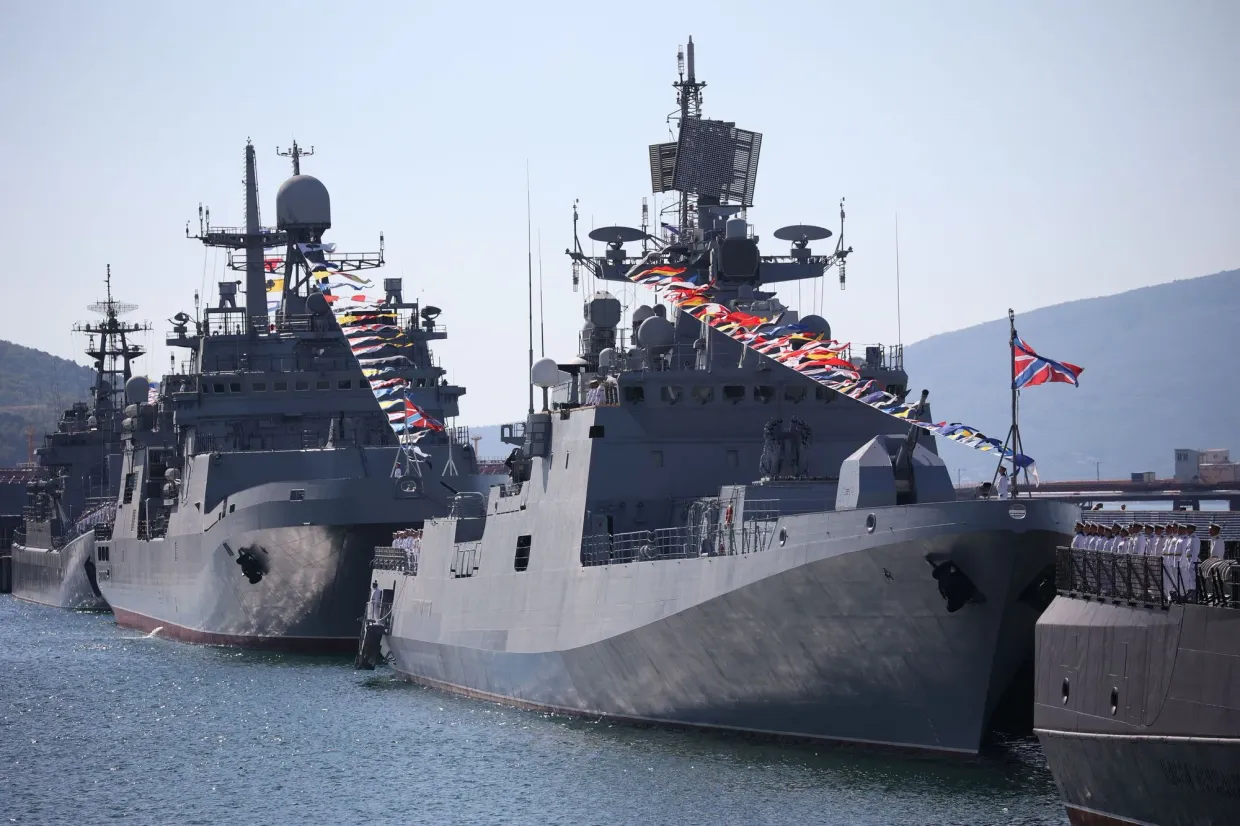
-
US considering lifting some sanctions to secure Black Sea ceasefire, Trump says
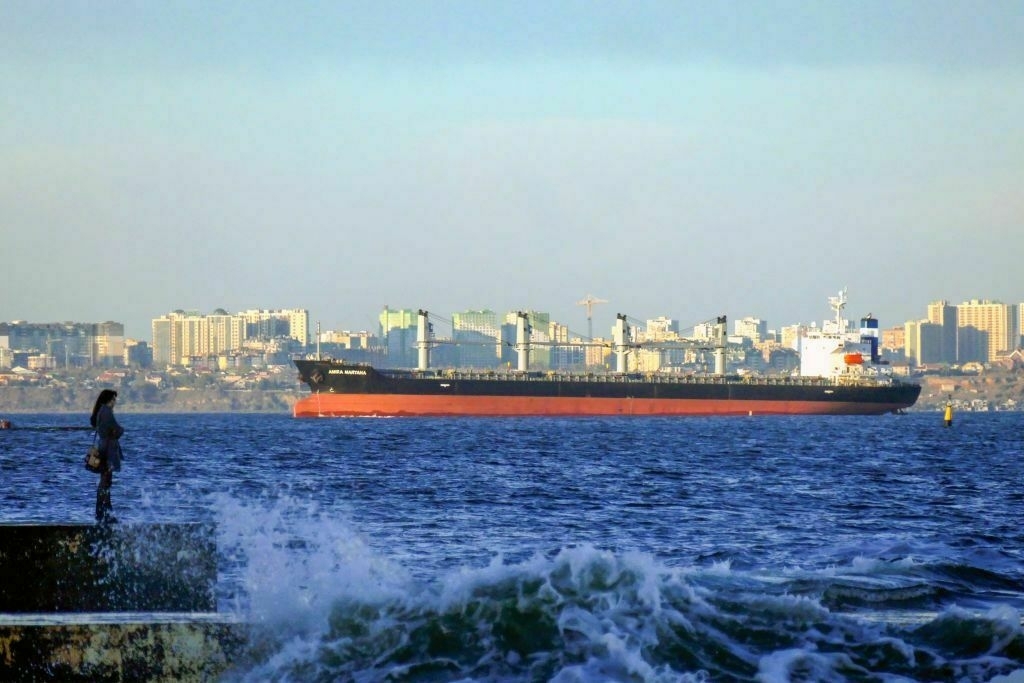
The United States is “looking at” lifting additional sanctions on Russia in order to secure a Black Sea ceasefire agreement, U.S. President Donald Trump said on March 25.
Trump’s comments come following talks between Russia and the U.S. in Saudi Arabia.
Russia and the U.S. agreed to implement a ceasefire in the Black Sea and a ban on strikes against energy infrastructure. To secure an agreement, the White House initially vowed to help restore Russia’s access to the world market for agricultural and fertilizer exports, lower maritime insurance costs, and enhance access to ports and payment systems for such transactions.
The Kremlin later issued a statement on March 25, stating that the ceasefire in the Black Sea will take effect only after Western sanctions on Russia’s Rosselkhozbank and other financial organizations involved in supporting international food trade operations are lifted and have their connection to the SWIFT messaging system restored.
“They will be looking at them and we are thinking about all of them right now. There are about five or six conditions. We’re looking at all of them,” Trump told reporters in response to a question on the possibility of lifting additional Russian sanctions.
Moscow is also demanding that the West lift the sanctions on Russian food producers and exporters, as well as on Russian-flagged ships involved in food and fertilizer trade. Another condition for the ceasefire is that commercial ships in the Black Sea should be inspected, according to the Kremlin.
President Volodymyr Zelensky told journalists that Ukraine believes that the partial ceasefire for the Black Sea and energy infrastructure strikes should take effect on March 25, at odds with the Kremlin’s statement.
Ukraine war latest: Black Sea ceasefire will take effect after some sanctions are lifted, Kremlin claimsKey developments on March 25: * Black Sea ceasefire will take effect after some sanctions are lifted, Kremlin claims * Kremlin names energy facilities exempt from strikes during partial ceasefire * Ukrainian airstrike kills up to 30 Russian soldiers in Kursk Oblast, military claims * Russia see…The Kyiv IndependentThe Kyiv Independent news desk
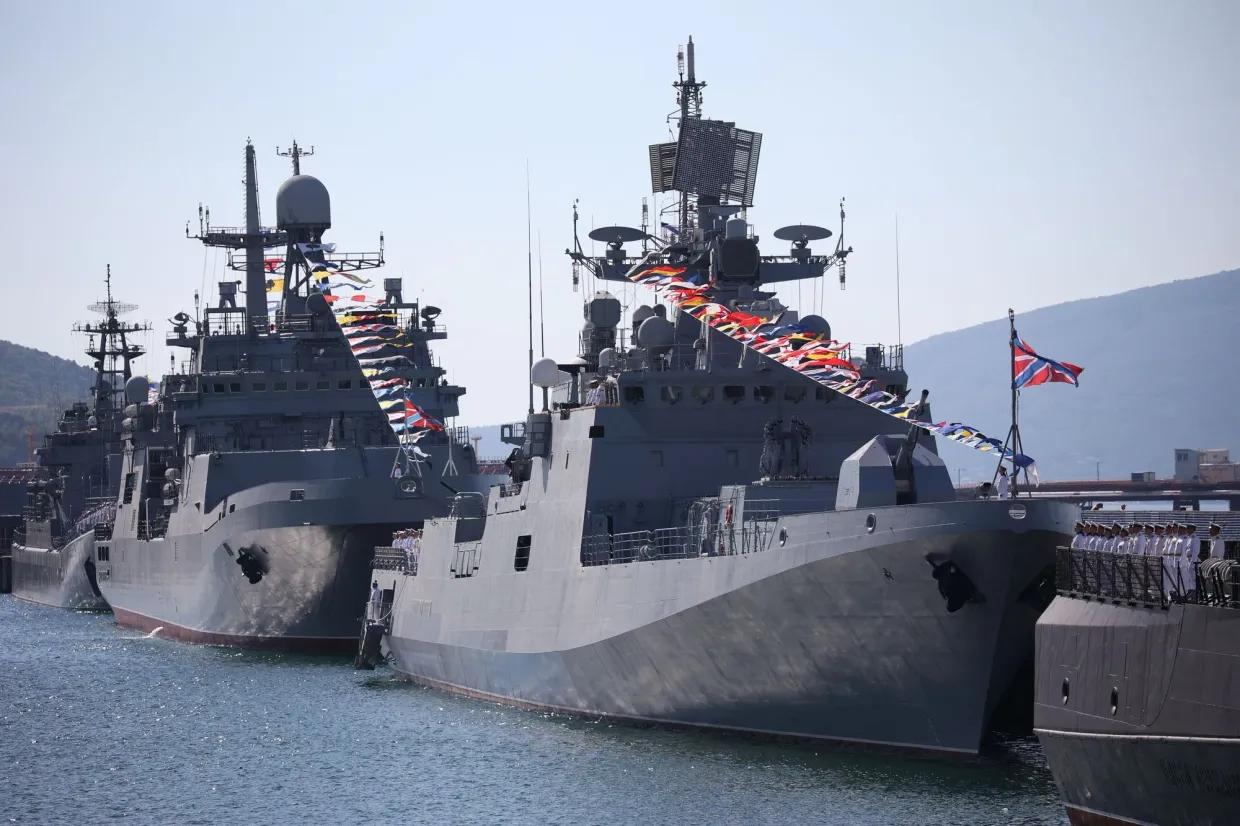
-
Russia rejects calls to return Zaporizhzhia nuclear plant
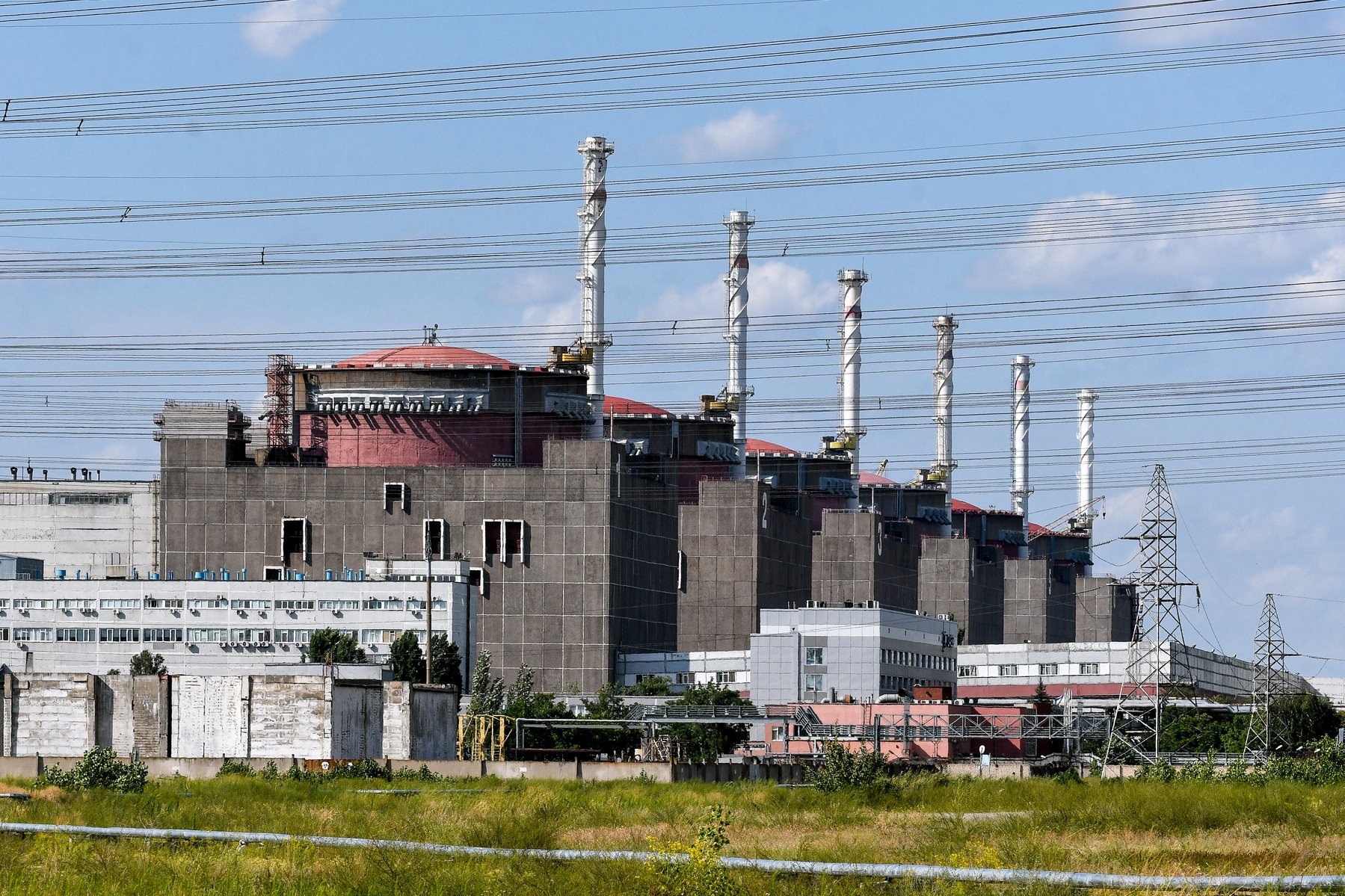
Russia’s Foreign Ministry announced on March 25 that the Zaporizhzhia Nuclear Power Plant is a Russian facility and cannot be transferred to Ukraine or any other country. The ministry also ruled out the possibility of joint operation, arguing that ensuring the plant’s physical and nuclear safety would be impossible.
Moscow claims control over the plant based on its illegal annexation of four Ukrainian regions in September 2022, including Zaporizhzhia (where Ukraine controls the regional capital, as well as in Kherson Oblast), following staged referendums with residents forced to vote at gunpoint.
The Kremlin falsely claimed that 98% of the population supported joining Russia and proceeded to declare annexation without any legitimate basis. Ukraine and Western countries have dismissed the referendums as fraudulent.
“The return of the station to Russia’s nuclear sector has been a fait accompli for quite some time,” the ministry said on March 25. “Transferring the Zaporizhzhia plant to the control of Ukraine or another country is impossible.”
Russian forces captured the plant early in the full-scale invasion. Although the plant is no longer generating electricity, the U.N.’s nuclear watchdog maintains monitors at the site, as it does at all Ukrainian nuclear facilities.
The facility has been repeatedly disconnected from Ukraine’s power grid due to Russian attacks on the country’s energy infrastructure. Moscow has ignored calls to relinquish control of the facility.
Ukraine continues to demand the plant’s return to its jurisdiction and rejects Russia’s claim over its territory.
During a recent phone call with President Volodymyr Zelensky, U.S. President Donald Trump suggested that the United States could help operate and possibly own Ukraine’s nuclear power plants.
Demarcation lines, ownership of Ukraine’s power plant discussed in Saudi Arabia, Trump says“Some people are saying the United States should own the power plant…because we have the expertise,” Donald Trump said.The Kyiv IndependentKateryna Hodunova
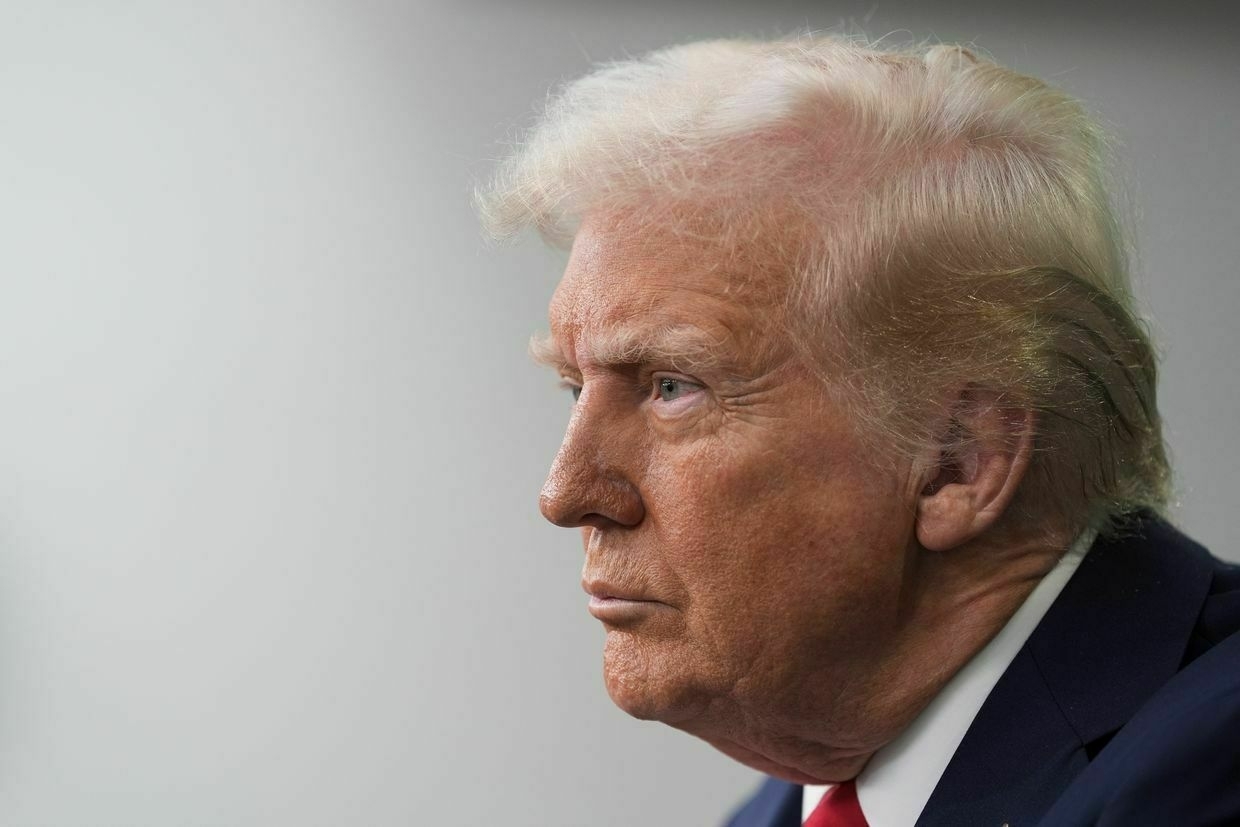
-
US proposed new version of minerals deal to Ukraine, Zelensky says
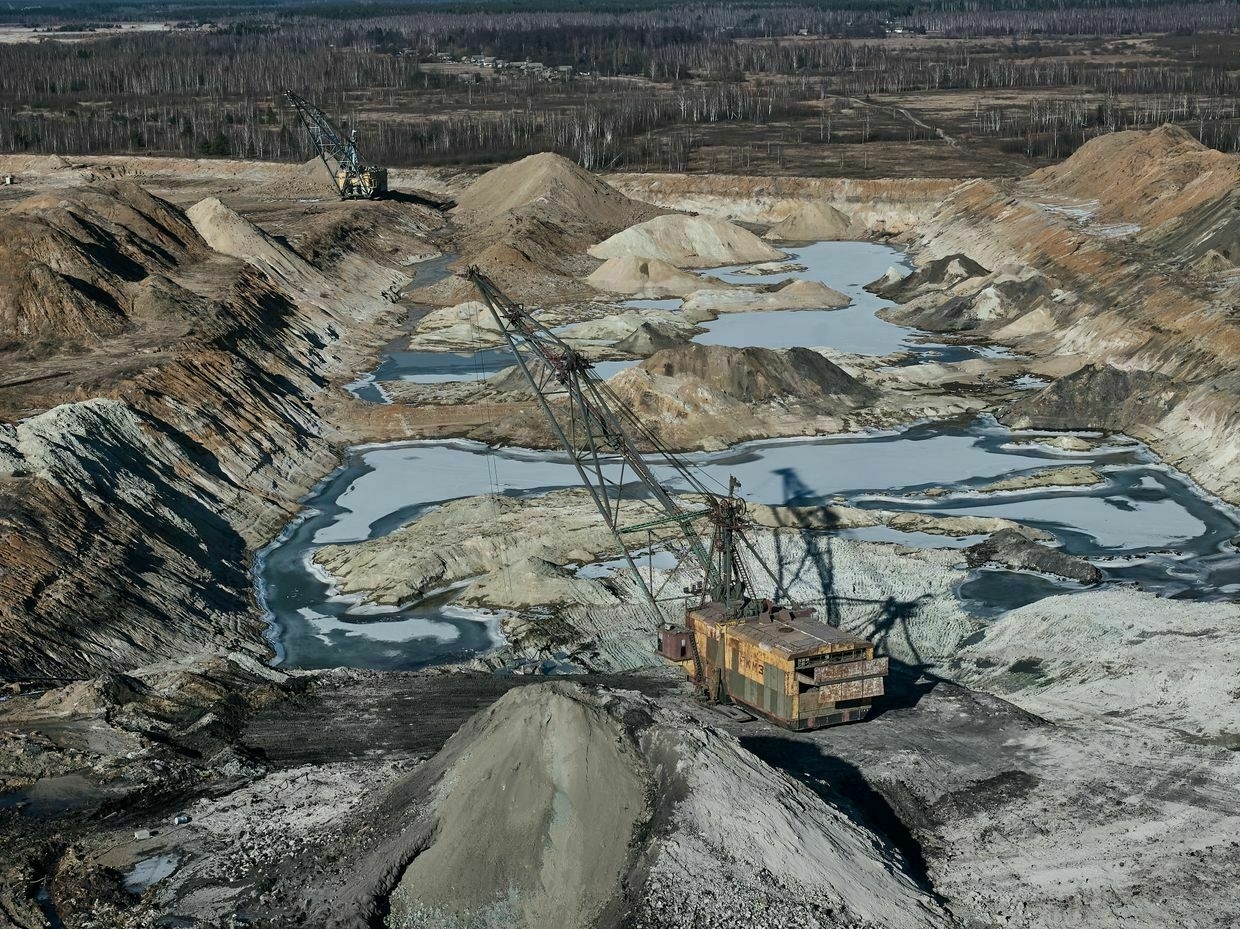
The U.S. has proposed signing a new “major” minerals deal with Ukraine based on a previous framework agreement, President Volodymyr Zelensky told reporters on March 25.
A day before, U.S. President Donald Trump said that he expected to sign the U.S.-Ukrainian mineral agreement “soon.” Zelensky didn’t mention any timelines.
The two nations had previously planned to sign a minerals deal on Feb. 28, but the plan was derailed after a heated clash between Trump and Zelensky at the White House.
“After the framework deal, a full agreement is being developed. Now the U.S. has offered us a ‘major’ deal, their vision (of the deal),” Zelensky said.
According to Ukraine’s president, officials have yet to explain to him further details about the agreement, which can be ratified by the Ukrainian parliament if a deal is made.
Zelensky also said that the new version of the agreement doesn’t include a clause on Ukraine’s nuclear power plants.
Previously, Trump said that Washington and Kyiv were discussing a deal under which the U.S. would own a Ukrainian power plant. He did not specify which facility he was talking about.
Zelensky said he had discussed with Trump the possibility of U.S. assistance in restoring the Zaporizhzhia Nuclear Power Plant (ZNPP), the largest nuclear facility in Europe. The plant, which is located in the town of Enerhodar on the east bank of the Dnipro River, remains under Russian occupation, and Ukraine has no access to the surrounding territory.
According to the initial version, the minerals agreement would establish a fund to which Ukraine would contribute 50% of proceeds from the future profits of the extraction of the state-owned resources, including oil, gas, and logistics infrastructure.
Ukraine rejected previous versions of the deal on the grounds that they lacked concrete security guarantees.
The final deal, which Kyiv approved, did not provide security assurances but did include a line that says the fund “will be reinvested at least annually in Ukraine to promote the safety, security and prosperity of Ukraine."
The White House has characterized the agreement as a way for the U.S. to “recoup” the financial aid it has directed to Kyiv since the start of Russia’s full-scale invasion.
Black Sea ceasefire will take effect after some sanctions are lifted, Kremlin saysThe Kremlin said that the Black Sea ceasefire would come into effect after the West lifts the sanctions against Russia’s Rosselkhozbank and other financial organizations involved in supporting international food trade operations and restores their connection to the SWIFT messaging system.The Kyiv IndependentKateryna Denisova
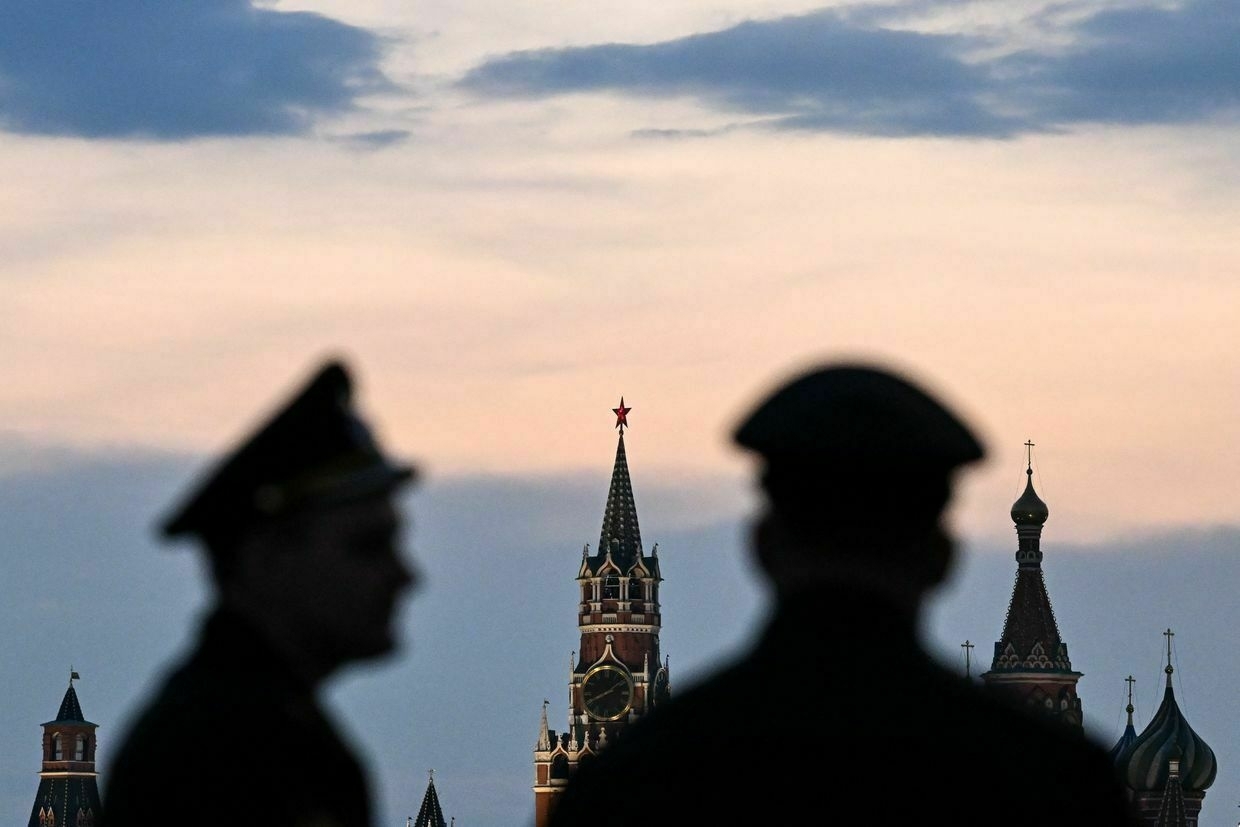
-
Ukraine war latest: Black Sea ceasefire will take effect after some sanctions are lifted, Kremlin claims
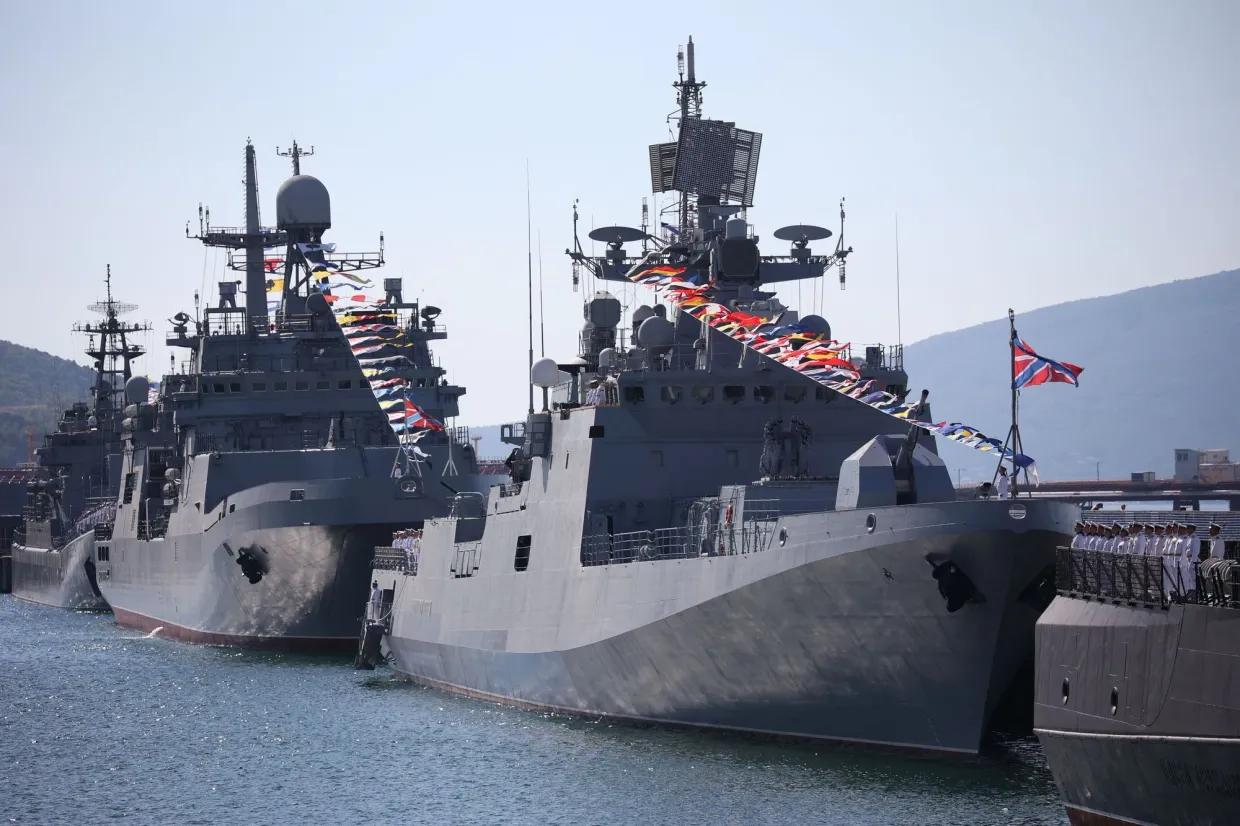
Key developments on March 25:
- Black Sea ceasefire will take effect after some sanctions are lifted, Kremlin claims
- Kremlin names energy facilities exempt from strikes during partial ceasefire
- Ukrainian airstrike kills up to 30 Russian soldiers in Kursk Oblast, military claims
- Russia seeks full control of partially occupied Ukrainian regions in talks with US, media reports
The ceasefire in the Black Sea will take effect only after Western sanctions on Russian food producers and exporters are lifted, the Kremlin said in a statement on March 25.
The statement came after two-day talks in Saudi Arabia, during which Ukraine, Russia and the U.S. agreed to implement a ceasefire in the Black Sea and a ban on strikes against energy infrastructure. The three sides have agreed to “eliminate the use of force” and prevent the use of commercial vessels for military purposes in the Black Sea, the White House said.
In contrast with Russia’s statement, Ukraine and the U.S. did not directly mention lifting sanctions against Moscow as part of the agreements.
Moscow’s statement is at odds with President Volodymyr Zelensky’s position. He said that Ukraine believes that the partial ceasefire should take effect on March 25.
Washington vowed to help restore Russia’s access to the world market for agricultural and fertilizer exports, lower maritime insurance costs, and enhance access to ports and payment systems for such transactions.
The Kremlin said that the Black Sea ceasefire would come into effect after the West lifts the sanctions against Russia’s Rosselkhozbank and other financial organizations involved in supporting international food trade operations and restores their connection to the SWIFT messaging system.
Moscow is also demanding that the West lift the sanctions on Russian food producers and exporters, as well as on Russian-flagged ships involved in food and fertilizer trade.
Moreover, the Kremlin wants the West to remove sanctions on the import of agricultural equipment and fertilizers into Russia.
Another condition for the ceasefire is that commercial ships in the Black Sea should be inspected, according to the Kremlin.
Zelensky views this move as a form of sanctions relief for Russia. He stated that Ukraine is unaware of the details, as the matter was discussed during U.S.-Russia talks.
"We didn't want it to be in the general document because this is a weakening of positions and sanctions," the president added.
He also said that Ukraine can turn to the U.S. in case the ceasefire is violated by Russia.
The Kremlin claimed that the ban on energy strikes had been in effect since March 18 and would be valid for 30 days with the possibility of extension.
Despite the agreement between U.S. President Donald Trump and his Russian counterpart, Vladimir Putin, a week ago, Russia has continued its regular campaign of aerial attacks against Ukrainian cities and infrastructure.
Putin’s ‘ceasefire’ — Russia continues attacks on Ukrainian civiliansThe Kremlin on March 18 announced it had agreed to a U.S.-proposed partial ceasefire against certain targets in Ukraine, claiming Russian President Vladimir Putin had “responded favorably to the proposal and immediately” ordered his armed forces to halt attacks. Despite the announcement — made afte…The Kyiv IndependentChris York
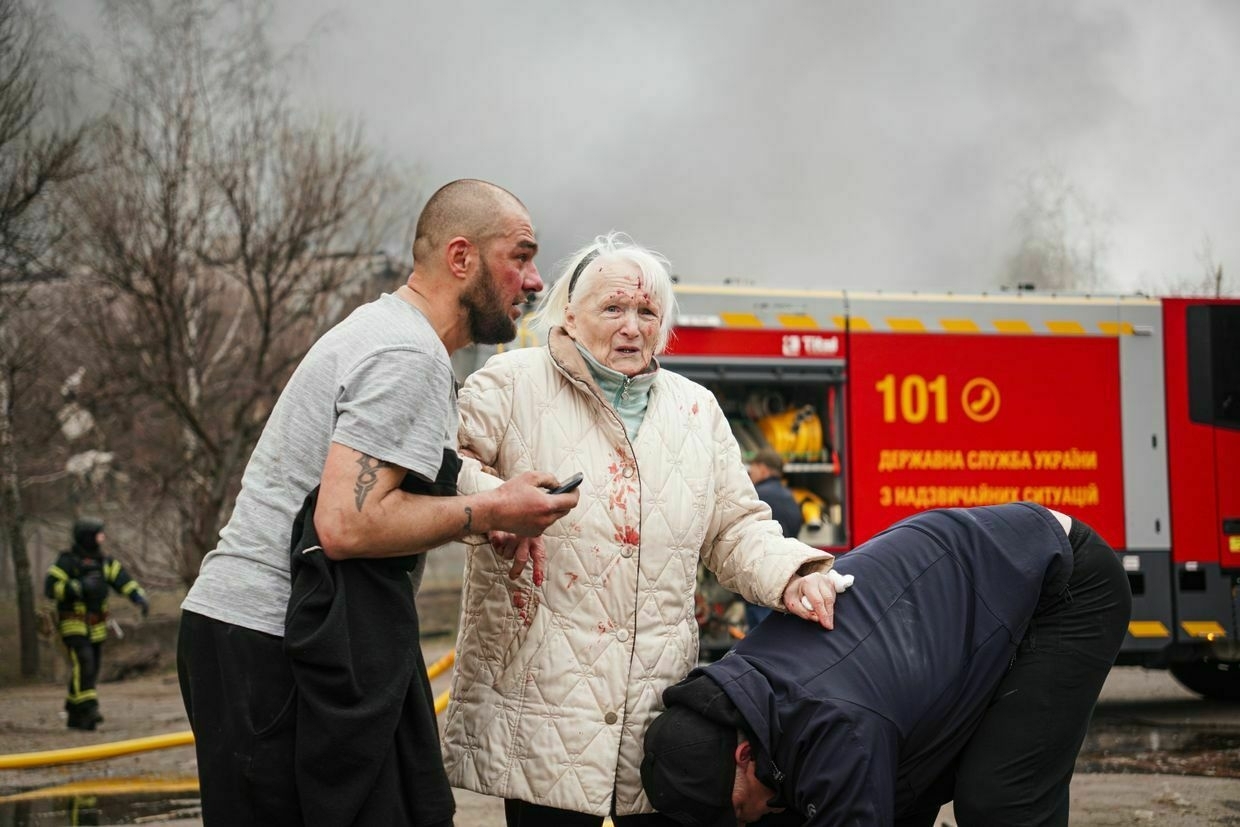
Kremlin names energy facilities exempt from strikes during partial ceasefireThe U.S. and Russia have agreed on a list of Russian and Ukrainian energy facilities that cannot be attacked during a partial ceasefire, the Kremlin said on March 25.
According to the Kremlin, the list includes oil refineries, as well as oil and gas pipelines and storage facilities, including pumping stations.
The list also includes power production and transmission facilities, including power plants, substations, and transformers. Among power plants, the Kremlin specifically named nuclear power stations and hydroelectric dams.
Kyiv has yet to comment on this statement.
According to President Volodymyr Zelensky, Kyiv has handed over a list of energy infrastructure that Moscow should not strike during the partial ceasefire. He did not specify the facilities on the list.
When ho(us)e becomes ho(me) (PHOTOS)The average person now spends more than 60% of their time at home — a space that has, especially in recent times, evolved into a place where people build relationships, advance their careers, pursue education, and celebrate milestones. For Ukrainians, the meaning of home has been profoundly reshape…The Kyiv IndependentLiudmyla Shkurak

Ukrainian airstrike kills up to 30 Russian soldiers in Kursk Oblast, military claimsUkraine's Air Force has struck a concentration of Russian military personnel in Kondratovka, Kursk Oblast, killing up to 30 Russian soldiers, the General Staff reported on March 25.
"As a result of the strike, it (the target) was completely destroyed," the statement said, adding that Ukraine's pilots and Defense Forces will continue targeting Russian positions to reduce Moscow's military potential.
The Kyiv Independent could not independently verify the claims.
Kondratovka is a rural community in western Kursk Oblast, near the border with Ukraine. It is part of the historical region of Slobozhanshchyna.
Inside the new drone schools teaching the next generation of Ukrainian UAV pilotsUkraine’s drone wizardry has drawn the attention of militaries around the world. In addition to an ever-growing drone industry, the rise of unmanned aerial vehicles (UAVs) has necessitated new education. Since 2022, a crop of drone schools has popped up around Ukraine to train drone pilots to fight…The Kyiv IndependentKollen Post
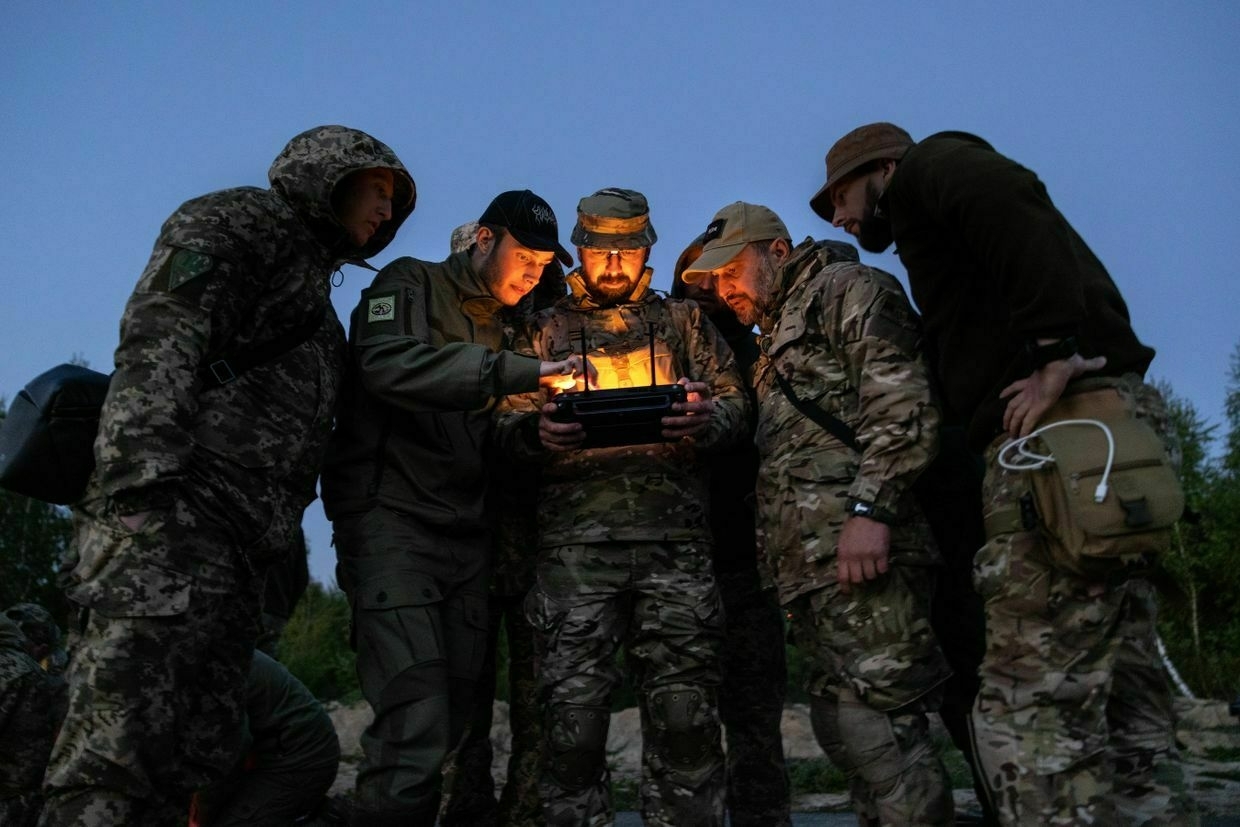
Russia seeks full control of partially occupied Ukrainian regions in talks with US, media reportsRussia is pushing to gain full control over four occupied Ukrainian oblasts—Donetsk, Luhansk, Zaporizhzhia, and Kherson — during negotiations with the United States in Saudi Arabia, the Moscow Times reported, citing sources familiar with the Kremlin’s strategy.
Although Russian forces do not fully control any of these regions, the Kremlin demands them in their administrative borders, as defined in the Russian Constitution following their illegal annexation.
A Kremlin-linked official told the Moscow Times that Russia's President Vladimir Putin cannot afford to lose these territories politically, and Russia intends to solidify its grip on them at any cost.
"The Constitution has no mechanism for regions to leave Russia. We need all of Zaporizhzhia and all of Kherson," the official reportedly said.
The Kyiv Independent can't immediately verify these claims.
Another Russian government source suggested that Moscow hopes Washington might pressure Kyiv to withdraw entirely from the occupied regions.
"Either Trump convinces them to leave, or we are told to enter prolonged negotiations while simultaneously using military force to secure control. That would be the worst scenario for us since river crossings are always costly operations," the source added.
As an alternative, Russia may attempt to seize additional Ukrainian territory, such as parts of Dnipropetrovsk or Sumy oblasts, and then offer an exchange for Kherson and Zaporizhzhia, another Russian official speculated. "We hope to find a way that avoids storming Kherson or forcing a crossing of the Dnipro River. That would mean thousands of casualties for us," he admitted.
As of late 2024, Russian forces controlled about 98.5% of Luhansk Oblast and 60% of the Donetsk region.
Despite these challenges, Russian diplomats believe that a potential Trump administration may be indifferent to the exact borders of a future settlement.
"From what I understand, Trump wants a modern, well-armed, pro-Western Ukraine," a Russian diplomat told the outlet. "He cannot just hand over Ukraine entirely. But where exactly the border is drawn—that may not matter much to him."
Note from the author:
Ukraine War Latest is put together by the Kyiv Independent news desk team, who keep you informed 24 hours a day, seven days a week. If you value our work and want to ensure we have the resources to continue, join the Kyiv Independent community.
-
Kremlin names energy facilities exempt from strikes during partial ceasefire
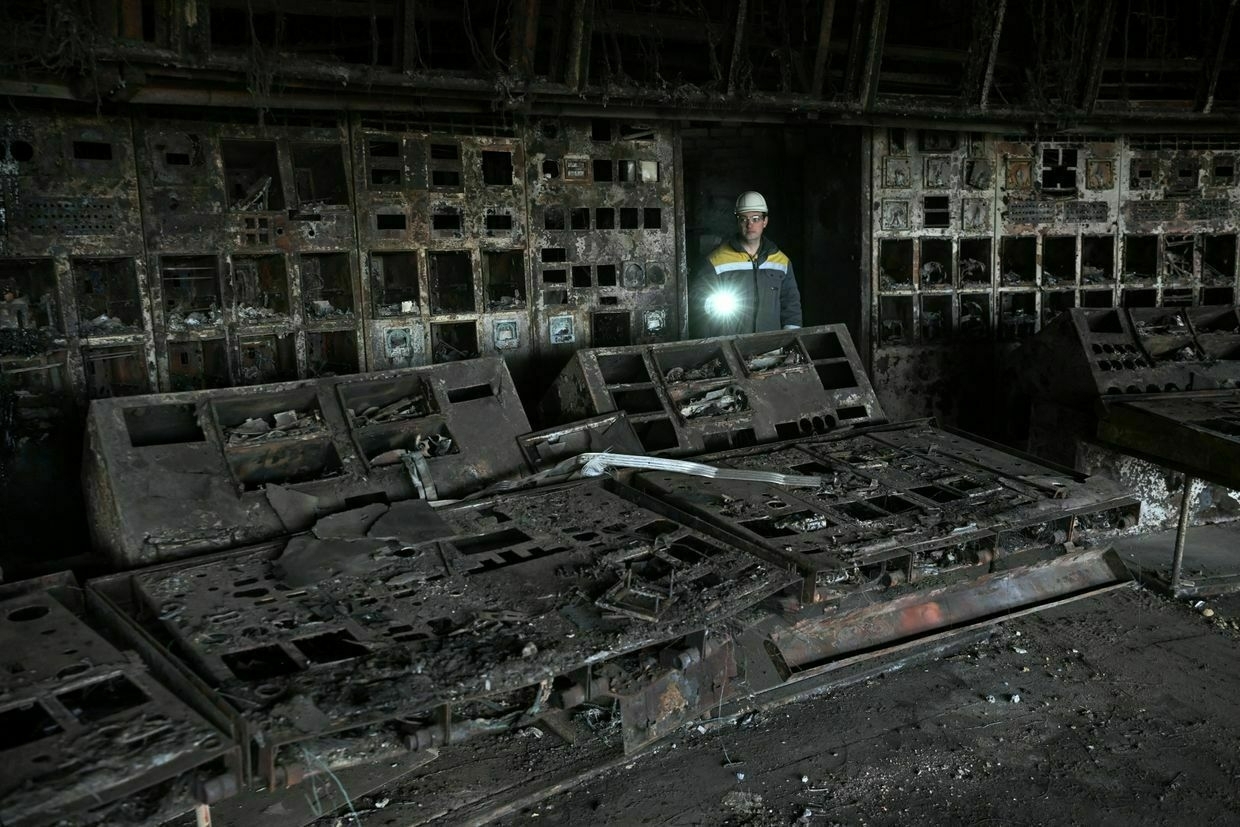
The U.S. and Russia have agreed on a list of Russian and Ukrainian energy facilities that cannot be attacked during a partial ceasefire, the Kremlin said on March 25.
The statement came after two-day talks in Saudi Arabia, during which Ukraine, Russia and the U.S. agreed to implement a ceasefire in the Black Sea and a ban on strikes against energy infrastructure.
According to the Kremlin, the list includes oil refineries, as well as oil and gas pipelines and storage facilities, including pumping stations.
The list also includes power production and transmission facilities, including power plants, substations, and transformers. Among power plants, the Kremlin specifically named nuclear power stations and hydroelectric dams.
Kyiv has yet to comment on this statement.
According to President Volodymyr Zelensky, Kyiv has handed over a list of energy infrastructure that Moscow should not strike during the partial ceasefire. He did not specify the facilities on the list.
Russian forces have regularly targeted Ukraine’s civilian energy infrastructure since 2022, intensifying their aerial campaign in recent months with nightly drone and missile attacks.
Ukraine’s attacks on Russian oil refineries deep behind the front lines are intended to undermine Moscow’s capacity to wage its all-out war.
Moscow also claimed that the ban on strikes against energy facilities began on March 18 and would be valid for 30 days. The timeline can be extended by mutual agreement, the statement read.
Ukraine believes that the partial ceasefire for the Black Sea and energy infrastructure strikes should take effect on March 25, Zelensky said.
Despite the agreement on a ban on energy infrastructure strikes between U.S. President Donald Trump and his Russian counterpart, Vladimir Putin, a week ago, Russia has continued its regular campaign of aerial attacks against Ukrainian cities and infrastructure.
Russia, Ukraine agree to partial ceasefire in Black Sea, US to help restore Russia’s access to marketsWashington vowed to help restore Russia’s access to the world market for agricultural and fertilizer exports, lower maritime insurance costs, and enhance access to ports and payment systems for such transactions.The Kyiv IndependentKateryna Denisova
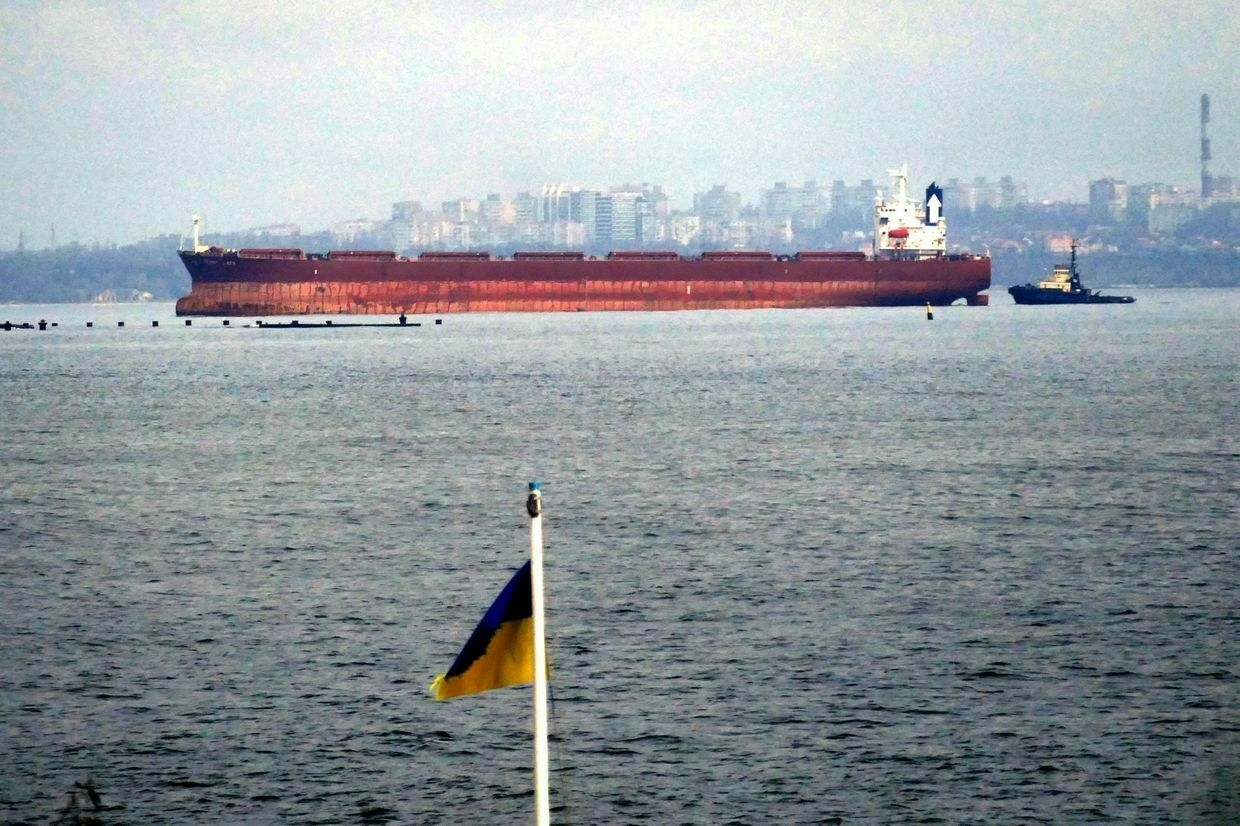
-
Partial ceasefire should start on March 25, Zelensky says
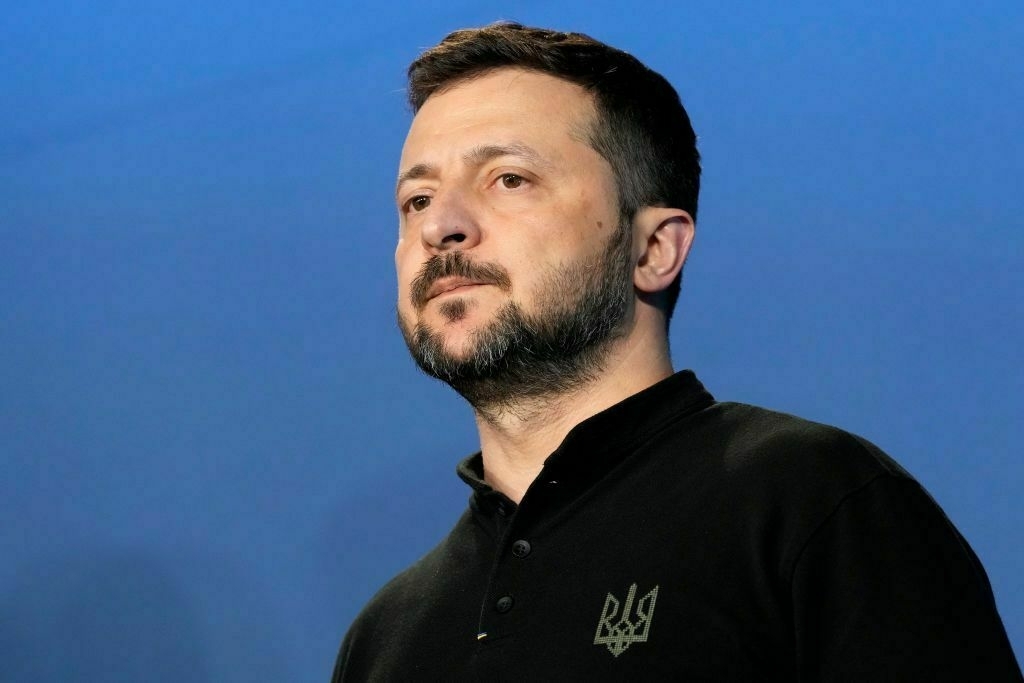
Ukraine believes that the partial ceasefire for the Black Sea and energy infrastructure strikes should take effect on March 25, President Volodymyr Zelensky told journalists.
Zelensky’s position is at odds with Russia’s March 25 statement that the Black Sea ceasefire would take effect only after Western sanctions on Russian food producers and exporters are lifted.
The statement came after two-day talks in Saudi Arabia, during which Ukraine, Russia and the U.S. agreed to implement a ceasefire in the Black Sea and a ban on strikes against energy infrastructure.
Zelensky said that Defense Minister Rustem Umerov had asked the U.S. when the partial ceasefire deal could come into effect.
“We believe that, after Washington makes two official statements… the ceasefire in the sea and the energy ceasefire must come into effect, in (the Americans') opinion,” Zelensky said. “Undoubtedly this depends on orders given by the presidents to their military forces.”
Washington has also vowed to help restore Russia’s access to the world market for agricultural and fertilizer exports, lower maritime insurance costs, and enhance access to ports and payment systems for such transactions.
Zelensky sees this move as sanctions relief for Russia.
He also said that Ukraine can turn to the U.S. in case the ceasefire is violated by Russia.
The Kremlin claimed that the ban on energy strikes had been in effect since March 18 and would be valid for 30 days with the possibility of extension.
Despite the agreement between U.S. President Donald Trump and his Russian counterpart, Vladimir Putin a week ago, Russia has continued its regular campaign of aerial attacks against Ukrainian cities and infrastructure.
Editorial: What Steve Witkoff doesn’t get about Ukraine (and Russia)In any negotiation, one of the most powerful weapons is knowledge. In that regard, Steve Witkoff is willfully disarmed. And it’s playing just right for Russia. The interview that Witkoff, Trump’s special envoy, gave to Tucker Carlson a few days ago revealed a truth that was perceived especiallyThe Kyiv IndependentThe Kyiv Independent
